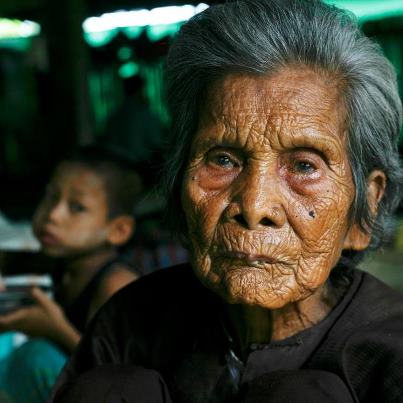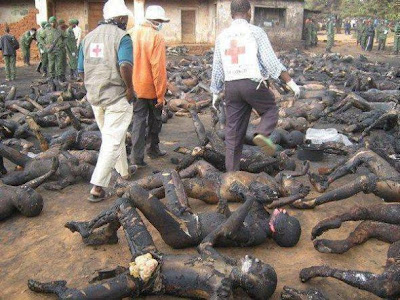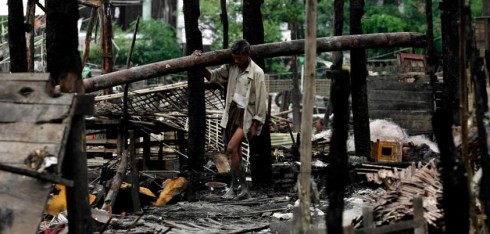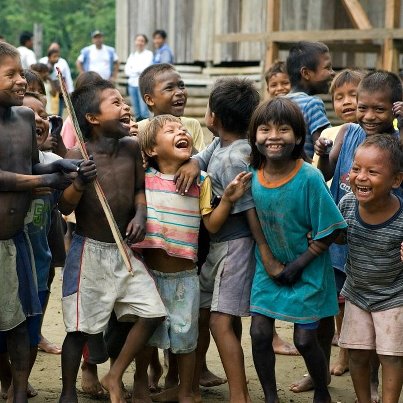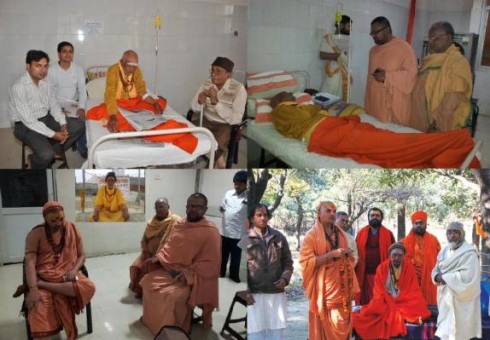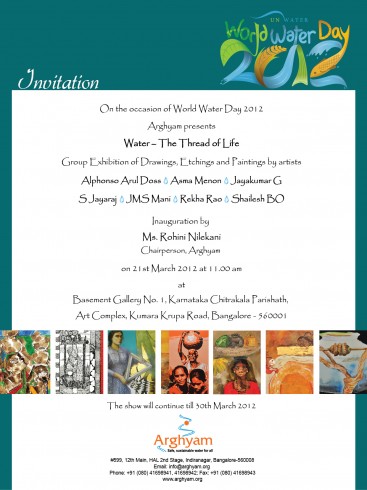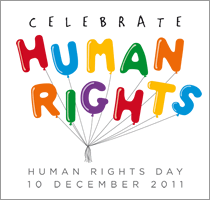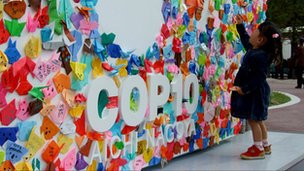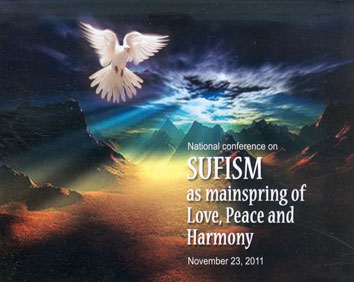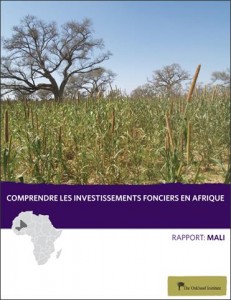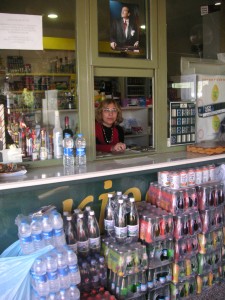Search results for farmlandgrab (23)
#Eleveurs: @gerard_larcher critique la „surdité“ du gouvernement:
Je reçois cet après-midi les représentants des coopératives et industries laitières #elevage @Senat_Info
Le Sénat mobilisé : @gerard_larcher: Je reçois cet après-midi les représentants des coopératives et industries laitières #elevage #crise
Le @Senat_Info organisera une séance de questions au Gvt chaque semaine à partir de la session ordinaire d’octobre. #QAG cc @gerard_larcher
Une séance de #QAG aura lieu un mardi sur deux, de 16H45 à 17H30, et une autre la semaine suivante, mais le jeudi, de 15H00 à 16H00. #Sénat
#Eleveurs: @gerard_larcher critique la „surdité“ du gouvernement: http://bit.ly/1KmbyUO
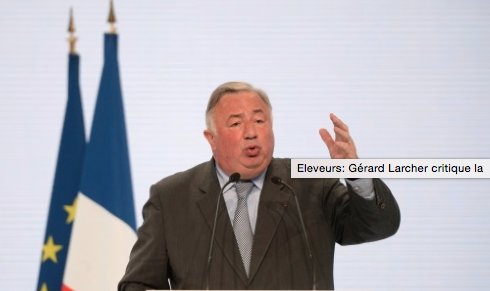
@gerard_larcher: „La commission des affaires sociales du Sénat a simplement demandé une application de la directive sur le #paquetneutre „
Ce matin, j’étais l’invité de @jjbertolus dans la matinale de @itele Le replay en cliquant ici http://gerardlarcher.fr/actualites-article.php?id=151 …
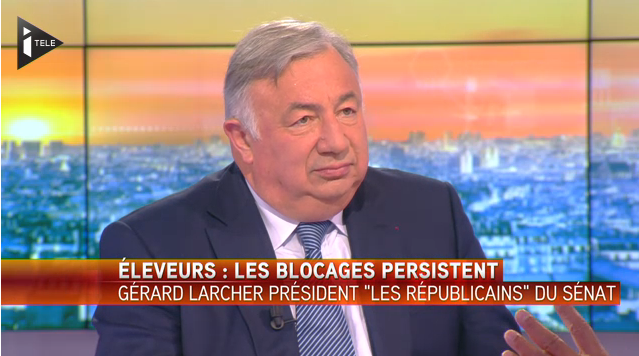
News Lens: Moving toward exposing corporate secrecy in World Bank contracting http://bit.ly/1HU2wLF
News Lens: US, UK, World Bank among aid donors complicit in Ethiopia’s war on indigenous tribes http://bit.ly/1KkXH14
FIFA case: Trinidad gets extradition request for Jack Warner http://www.espnfc.com/fifa-world-cup/story/2533190/fifa-case-trinidad-gets-extradition-request-for-jack-warner …
Dodd-Frank’s bid to clean up extractive industries stymied by oil business http://gu.com/p/4aq3j/stw
New Zealand MP admits Labour government got it wrong selling land to foreigners. http://tinyurl.com/pvpnz7x
Canadian mining goes on the offensive: Gabriel to sue #Romania over #RosiaMontana http://canadians.org/media/canadian-mining-goes-offensive …
Das ist nachweislich falsch, wie man zB anhand seiner Facebook-Seite erkennen kann. Fangen gerade erst an Unterschriften zu sammeln
Witzig. ZIB und Wien Heute berichten, Taskirans Liste habe bereits alle notwendigen Unterstützungserklärungen für Kandidatur beisammen…
Weil der Mann pleite ist, hat auch die Frau keine Wirtschaftskompetenz? Ist das euer Ernst, @KURIERat? http://kurier.at/politik/ausland/insolvenzverfahren-gegen-kappel-ehemann-straches-wirtschaftsexpertin-in-turbulenzen/142.875.846 … via @Helge
Liberians ‚pressured to sell land‘ for #palm #oil plantations http://www.bbc.co.uk/news/world-africa-33631848 …
Wybory prezydenckie na Białorusi za pasem. Władzom zależy, aby odbyły siÄ� one w sposób nie wzbudzajÄ�cy uwagi Zachodu. http://eastbook.eu/2015/07/country/belarus/wyborcze-plany-lukaszenki/ …
Russian friend sighs: „Extra charges for housing in #Moscow up by around 30%.“ #капитальныйремонт

Full text of Leader’s letter to youth of Europe & N.America #Letter4U — Update III
I’m addressing you, not b/c I overlook your parents, but b/c future of your country will be in your hands @myLetter4u

I am addressing you b/c the future of your country will be in your hands. #Letter4U Full Text: http://farsi.khamenei.ir/ndata/news/28731/index.html#en …
Leader’s Question: Have you ever received the message of #Islam from any sources other than the media? https://www.youtube.com/watch?v=4QzcLqxkV40&list=PLP9XKFcmDYv6EBg7C1E2Mkuw8NOEefW_m … #Letter4U
No difference between men and women in human values: Iran’s Leader https://www.youtube.com/watch?v=oeJ-V4EZY1A&list=PLP9XKFcmDYv4hmgwVEXplXrfnVeZQk-St&index=10 … #IWD2015 #IWD #InternationalWomensDay
Land confiscation should be treated as a crime.Those who destroy #nature should be prosecuted &negligent env. officers should be confronted.
Forests are lungs of country.Officials should deal decisively w #forest abuse regardless of any excuse like building hotels/even seminaries.
Pollution in our metropolises&issue of haze can be solved by prudence& diligence of officials;govt needs to define a National Env. Amendment
#Canada: Investment funds, pension plans and megafarms own Saskatchewan land. http://farmlandgrab.org/24592
Env. degradation is a pervasive challenge w lasting & long term consequences like melting of Antarctic ice which isn’t easily reversible.
Photos of #Iran’s environmental activists meeting w Ayatollah #Khamenei http://farsi.khamenei.ir/photo-print?id=29095 … #NationalResourcesWeek
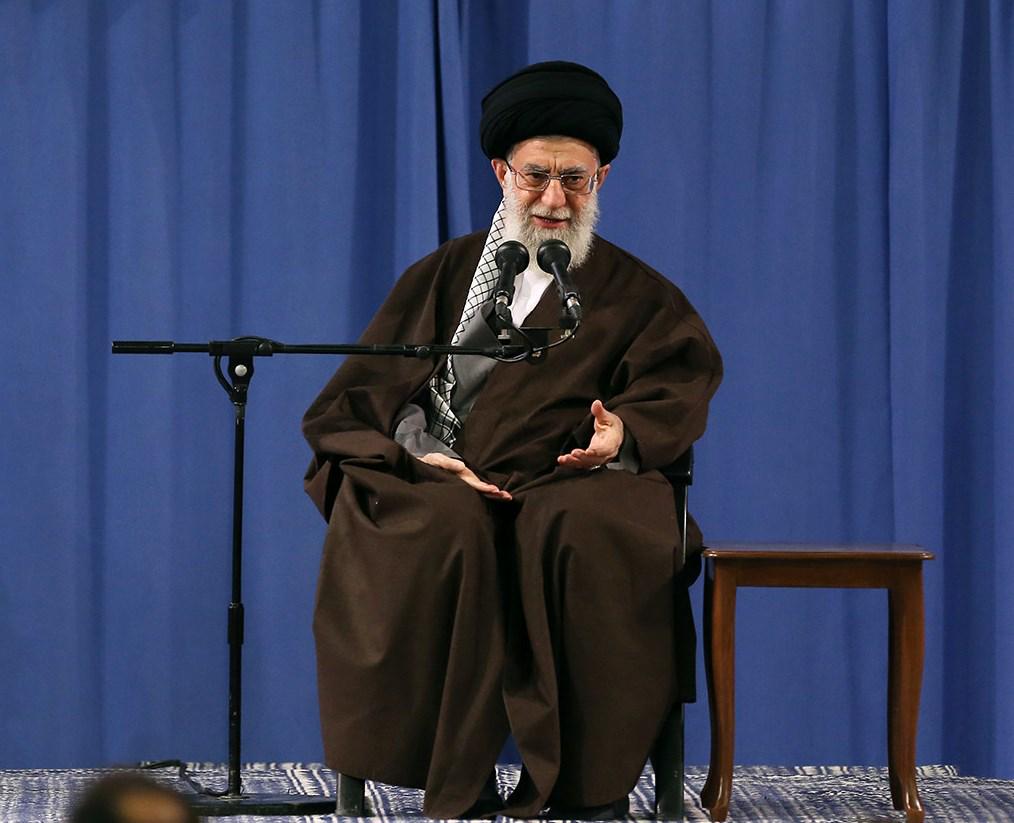
A group of #Iran’s environmental activists & officials met with the Leader of the Revolution minutes ago.
Ayatollah Khamenei: Preventing girls from education is against Islam https://www.youtube.com/watch?v=OkOxFOnfJ_Y&index=29&list=PLP9XKFcmDYv4hmgwVEXplXrfnVeZQk-St … #IWD2015 #InternationalWomensDay
Today marks the International Day of the World’s Indigenous Peoples
+United Nations Human Rights chief Navi Pillay urges countries to do more to respect treaties with #indigenous peoples “even when signed or otherwise agreed more than a century ago”: http://sm.ohchr.org/1cPGLja
“Broken treaties must become a thing of the past,” says UN expert James Anaya, calling for #reconciliation. More: http://sm.ohchr.org/1cz5pWs
© United Nations Permanent Forum on Indigenous Issues
#IndigenousDay: Broken treaties must become a thing of the past –@UNSR_JamesAnaya urges reconciliation: http://sm.ohchr.org/1cz5pWs
Today #IndigenousDay! #Pillay urges countries to respect ALL treaties even if signed 100 years ago: http://sm.ohchr.org/1cPGLja
UN stresses importance of honouring treaties between States & indigenous groups http://ow.ly/nMplR #IndigenousDay @UN4Indigenous
On #IndigenousDay Ban Ki-moon calls for participation of indigenous peoples in decision-making at all levels. http://bit.ly/1cKaZUw
New MRG blog: On International Day of World’s Indigenous Peoples, Belize groups demand their rights: http://wp.me/p4dcE-oX #indigenousday
The rights of indigenous peoples are being pushed to the margins of development plans. http://bit.ly/15jP2Ek
On this #IndigenousDay, we call for the promotion & protection of #indigenous women & girls http://owl.li/nMyqp
Why #IndigenousDay comes at an important time for advancing the rights of #indigenous children http://uni.cf/13M3TvA
#UN rights chief #NaviPillay urges States to do more to respect #treaties with #indigenous peoples #humanrights… http://fb.me/2CFCWsGSJ
सुर्खेत अपडेट: #Nepal #Surkhet #Kakrebihar #secularism #indigenous #humanrights आज श्रावण महिना को १५ गते धर्म… http://fb.me/QsSsWJFk
The 19th commemoration of the International Day of the World’s Indigenous Peoples is today. Events will be held… http://fb.me/2YCoQcm8K
#Indigenous peoples in #Argentina: “We are strangers in our own country” | Amnesty International http://www.amnesty.org/en/news/indigenous-peoples-argentina-we-are-strangers-our-own-country-2013-08-09 …
India lost 220 languages in last 50 years, survey finds – The Times of India http://timesofindia.indiatimes.com/india/India-lost-220-languages-in-last-50-years-survey-finds/articleshow/21720601.cms …
TODAY: On International Day of the World’s Indigenous Peoples, we speak to @HonorTheTwoRow. Stream at http://democracynow.org . #IndigenousDay
TODAY: Singing in support of @HonorTheTwoRow & #IndigenousDay, we talk to legendary musician & activist @Peter_Seeger http://democracynow.org
„Two Row delegation at United Nations formal program to honor the Intl Day of the World’s Indigenous Peoples“ – http://ow.ly/nBwFT
Honouring Indigenous Groups, Rights Chief Urges Respect for Existing Treaties http://allafrica.com/c/-4v-1F #africa
The Role of Indigenous Communities in Transition to a Green Economy http://allafrica.com/c/-4v-6i #africa
Today is International Day of the World’s Indigenous Peoples. Celebrate by joining @CSORG webinar on #FPIC http://bit.ly/16qp7h6
Happy World Indigenous Peoples Day! Read more about the day here http://ow.ly/nLVI0 How are you celebrating?
The wonderful Nicolae Gheorghe, Roma human rights activist, prominent academic & long-time friend has died. He made such a difference. http://www.errc.org
‚Traveller leader accuses politicians of „open season on ethnic minorities“‚ in @guardian http://www.theguardian.com/world/2013/aug/09/traveller-site-guidance-ethnic-minorities …
‚Roma in Hungary: A terrible waste of human potential‘ in @TheEconomist http://www.economist.com/blogs/easternapproaches/2013/08/roma-hungary?fsrc=scn/tw_ec/a_terrible_waste_of_human_potentia …
On this #IndigenousDay, @UN_Women are calling for the promotion and protection of indigenous women & girls: http://bit.ly/1cjoqgq
Today is International Day of the World’s #Indigenous Peoples: check out events & more information on: http://bit.ly/1exkZ1G #consent
Full program of events for UN International Day of World’s Indigenous People http://bit.ly/196BfWH @UN4Indigenous #IndigenousDay
#africa Indigenous Peoples‘ Day – the Perils of Progress: http://allafrica.com/c/-4v-C5
Enough Project Project: „Sudan: The Economics of Ethnic Cleansing“ says economic imperatives r now driving viol. http://ow.ly/nMBHC #R2P
Check out this video report highlighting how #Guatemala’s indigenous groups divided over #genocide ruling http://ow.ly/nMNeK #R2P
Killings of #Brazil’s indigenous Indians highlight countries http://farmlandgrab.org #LandGrabs http://gu.com/p/3h68y/tw
SATURDAY SPOTLIGHT! In honour of yesterday’s #IndigenousDay, let us introduce you to the Saik’uz women: http://bit.ly/13Uczwb
Did you know that IPS has their own youtube channel? Watch our monthly interviews w/ experts in the field https://www.youtube.com/user/PalestineStudiesTV … #Palestine
Take the IPS‘ 2013 General Survey! It’s a brief survey, intended to capture your interests and hobbies http://surveymonkey.com/s/3RLWKKY …

UN human rights chief Navi Pillay urging a prompt independent investigation:
2012-10-27 Update — Asia Pacific Centre for the Responsibility to Protect (R2P)
„He cited Aceh as an example, highlighting that the implementation of human rights – as is internationally understood – must adapt to the sharia implemented in
the province.
The joint ministerial decree is among the three regulations the Indonesian government has offered to set up in response to its refusal to adopt 30 „critical“ recommendations by the United Nations Human Rights Council (UNHRC) after a quadrennial human rights review in May.
In addition to the decree, the government has also announced that it will establish a law on human rights friendly districts and finalize the long-awaited truth and reconciliation bill to deal with past human rights abuses.“
Human rights must bow to religious values: Home Minister | The Jakarta Post
Citing Syria and Mali, deputy UN chief highlights impact of Security Council unity
Religious harmony is a must, but how? | The Jakarta Post
„Table of religious intolerance:
• During the era of President Susilo Bambang Yudhoyono (as of 2007) 108 churches have been closed/damaged; in the era of president Megawati Soekarnoputri, 92; in the era of president Abdurrahman Wahid, 232; in the era of president Soeharto, 456.
• Based on data from the Manado Post daily, there were 2,442 cases of church closures and demolitions in the period between 2004 and 2010
• In 2011, Setara Institute recorded 244 cases of religious intolerance in 17 regions. The largest number of cases was recorded in West Java (57 cases), followed by South Sulawesi (45), East Java (31), North Sumatra (24) and Banten (12).“
http://www.ohchr.org/EN/Issues/FreedomReligion/Pages/FreedomReligionIndex.aspx
http://en.wikipedia.org/wiki/Freedom_of_religion
http://www.thejakartapost.com/news/2012/10/20/religious-harmony-a-must-how.html
2012-10-23 Update: Asia Pacific Centre for the Responsibility to Protect (R2P)
„We need humanitarian assistance. If we reject the humanitarian assistance, the international community will not accept us,“ Thein Sein told reporters in his first domestic press conference since taking office 18 months ago.
„We have to feed the people. It costs $10,000 a day,“ he said of the Rakhine camps.
„Our government cannot afford it. We are not in a situation to feed the people in the camps with the help of ordinary citizens so we have to accept humanitarian assistance from the international community. If we do not accept the humanitarian assistance they will say we are not human.“
http://www.interaksyon.com/article/46140/myanmar-leader-says-open-to-aid-for-muslims
2012-10-12 Update — BANGLADESH: Rohingya refugees face more restrictions
DHAKA, 12 October 2012 (IRIN) – Activists warn of further restrictions on Rohingya refugees in southeastern Bangladesh following recent communal violence.
“Rohingya refugees in Bangladesh will likely face more restrictions on their movement or arrests and push-backs,” Chris Lewa, director of the Arakan Project, an advocacy organization for the Rohingya, told IRIN on 12 October.
“We are seeing examples of that already on the ground.”
“Refugees International is concerned about the talk of further restrictions being imposed on Rohingya refugees in the Cox’s Bazar District of Bangladesh,” said Melanie Teff, a senior advocate with Refugees International.
The Rohingya – an ethnic, linguistic and religious minority who fled persecution en masse from Myanmar’s neighbouring Rakhine State decades ago – have long had a tenuous relationship with the Bangladeshi authorities who view them as illegal migrants.
Under Burmese law, they are de jure stateless and face constant persecution, say activists, while in Bangladesh they are barred from employment.
According to the UN Refugee Agency (UNHCR), there are more than 200,000 Rohingya in Bangladesh today, including more than 30,000 documented refugees living in two government-run camps [Kutupalong and Nayapara] within 2km of the Burmese border.
UNHCR has not been permitted to register newly arriving Rohingya since mid-1992. The vast majority of Rohingya are living in villages and towns in the area and receive little to no assistance as UNHCR is only allowed to assist those who are documented.
Blame game
On 1 October, Bangladesh Home Minister Mohiuddin Khan Alamgir accused the Rohingya of involvement in a series of attacks on minority Buddhist temples and homes in the southeast.
The violence was reportedly triggered by a photo posted on Facebook that insulted Islam at the end of September, resulting in some of the worst sectarian violence in Bangladesh in years.
Thousands of Muslims went on the rampage in predominately Buddhist areas, setting ablaze temples and monasteries, resulting in dozens of homes burned.
„The attacks on temples and houses in Buddhist localities in Ramu and neighbouring areas in Cox’s Bazar (district) were perpetrated by radical Islamists,“ the minister told reporters.
„Rohingyas and political opponents of the government were also involved in the attack,” he added, describing the incident as a „premeditated and deliberate attempt“ to disrupt communal harmony.
Recent violence in Rakhine State has displaced thousands
Following the violence, law enforcement agencies were instructed to restrict the movement of Rohingya refugees and curb their interactions with the local community – a move confirmed by refugees on the ground.
“New check posts were established and we are facing abnormal restriction after the Ramu incident,” a 20-year-old Rohingya youth, who asked not to be identified, told IRIN by phone.
Impact in Myanmar
The impact of these events in Myanmar is also a concern. “What’s happening in Bangladesh will only exacerbate communal tension inside Rakhine State,” Lewa said.
In June 2012 violence flared in Rakhine State forcing tens of thousands of Rohingya to flee both within Myanmar and across the border.
According to Myanmar government estimates, more than 70,000 people are now living in temporary camps and shelters following inter-communal conflict.
Of particular concern is forced segregation and protracted displacement in the state capital, Sittwe, where Rohingya who lost their homes in the violence have been moved into camps, says Refugees International.
Despite repeated advocacy efforts by UNHCR, civil society and the diplomatic community, Bangladesh decided to close its borders to persons fleeing the country.
Those who managed to make it to Bangladesh were rounded up and sent back. However, there are no reliable figures on the number of arrivals and the number refouled.
2012-10-11 Update — U Ba Sein Rohingya Blogger
The European Rohingya Council formed ~ Rohingya Blogger http://bit.ly/WS8oiu
2012-10-10 Update — Burma News from Mizzima
Plight of stateless Rohingyas hinges on citizenship: US official. The lack of citizenship must be addressed for any long-term solution to the distress in the Rohingya community http://bit.ly/PmZIRJ
2012-10-06 Update — Democratic Voice of Burma
Analysis: Did the gov’t incite the racial violence targeting the Rohingya? http://bit.ly/R2GFI6
2012-10-06 Update — Asia Pacific Centre for the Responsibility to Protect (R2P)
2012-09-30 Update — “ Casualties of 5 thousand people, numerous people injured and thousands displaced and homeless after the Security Council may not take any action, then what can they ?“ ‘‘২৫ হাজার মানুষের প্রাণহানি, অসংখ্য মানুষ আহত এবং হাজার হাজার মানুষ বাস্তুহারা ও গৃহহীন হওয়ার পরও যদি নিরাপত্তা পরিষদ কোন পদক্ষেপ নিতে না পারে, তাহলে তারা আর কী করতে পারে?“
সিরিয়ার সংকট সমাধানে ব্যর্থ হওয়ায় জাতিসংঘ নিরাপত্তা পরিষদের সংস্কারের দাবি তুলেছে নিউজিল্যান্ড৷ এদিকে, রোহিঙ্গা জাতিগোষ্ঠীর সদস্যদের সংকট সমাধানে সতর্কতার সাথে পদক্ষেপ গ্রহণের আহ্বান জানালেন জাতিসংঘ মহাসচিব বান কি-মুন৷
জাতিসংঘ সাধারণ পরিষদের বৈঠকে নিউজিল্যান্ডের পক্ষ থেকে দাবি উঠেছে, নিরাপত্তা পরিষদের স্থায়ী পাঁচ সদস্যের ভেটো ক্ষমতা সীমিত করার৷ বিশেষ করে যখন গণহত্যার মতো নির্মম ঘটনা বন্ধের প্রশ্ন আসে তখন অন্তত স্থায়ী পাঁচ সদস্যের ভেটো ক্ষমতা রহিত করা উচিত বলে মনে করেন নিউজিল্যান্ডের পররাষ্ট্র মন্ত্রী মারে ম্যাকালি৷ তিনি বলেন, সিরিয়ার বিষয়ে ঐকমত্যে পৌঁছতে ব্যর্থ হওয়ায় নিরাপত্তা পরিষদ তার বিশ্বস্ততা হারাচ্ছে৷
‘‘২৫ হাজার মানুষের প্রাণহানি, অসংখ্য মানুষ আহত এবং হাজার হাজার মানুষ বাস্তুহারা ও গৃহহীন হওয়ার পরও যদি নিরাপত্তা পরিষদ কোন পদক্ষেপ নিতে না পারে, তাহলে তারা আর কী করতে পারে?“ – এমনভাবেই জাতিসংঘ সাধারণ পরিষদের বৈঠকে প্রশ্ন তুলেছেন ম্যাকালি৷ নিরাপত্তা পরিষদের এমন ব্যর্থতায় নিউজিল্যান্ডের মানুষ হতাশ উল্লেখ করে তিনি নিরাপত্তা পরিষদের সংস্কার সাধনের দাবি তুলেন৷ তবে নিরাপত্তা পরিষদে ভেটো ক্ষমতা একেবারে তুলে দেওয়ার কথা না বলে বরং এটিকে সীমিত করার পক্ষে মত দেন মারে ম্যাকালি৷
এদিকে, জাতিসংঘ মহাসচিব বান কি-মুন বিশ্বের বৃহত্তম ইসলামি সংস্থা ওআইসি’র নেতৃবৃন্দের উদ্দেশ্যে বলেছেন, মিয়ানমারের মুসলিম জনগোষ্ঠী রোহিঙ্গাদের বিষয়টি অত্যন্ত সতর্কতার সাথে বিবেচনা করতে হবে৷ নতুবা সেদেশে চলমান রাজনৈতিক সংস্কার প্রক্রিয়াকে ব্যহত করতে পারে বলে আশঙ্কা প্রকাশ করেন তিনি৷ রোহিঙ্গা জনগোষ্ঠীর সমস্যা নিয়ে ইসলামি সম্মেলন সংস্থা ওআইসি’র মহাসচিব একমেলেদ্দিন ইহসানোগলু এবং মিয়ানমারের প্রেসিডেন্ট থেন সেনের সাথে পৃথক বৈঠক করেন বান কি-মুন৷ http://www.dw.de/dw/article/0,,16274693,00.html
2012-09-30 Update — U.N. chief urges careful handling of Myanmar Rohingyas issue
(Reuters) – U.N. Secretary-General Ban Ki-moon urged the world’s largest Islamic body on Saturday to „treat carefully“ the issue of the stateless Muslim Rohingyas in Myanmar because it could affect the reform process underway in the country, also known as Burma.
Over the past year, Myanmar has introduced the most sweeping reforms in the former British colony since a 1962 military coup. A semi-civilian government, stacked with former generals, has allowed elections, eased rules on protests and freed dissidents.
Read more here ~ http://bit.ly/RqZc3f
2012-09-26 Update — Auschwitz Institute for Peace and Reconciliation
The situation of the Rohingya people in Burma remains dire. Even as President Thein Sein has launched political and economic reforms to move the country away from its authoritarian past, and even as Aung San Suu Kyi, Burma’s champion of human rights, has been freed from house arrest and is now in the middle of an historic, emotional, and heavily publicized visit to the United States, there is still a threat of genocide for the Rohingya. With this in mind, Christine Lim traveled to the campus of Columbia University on Sept. 14 for a discussion titled “Burma in Transition: Minorities, Human Rights, and Democratic Process.” http://bit.ly/UtjzuV
2012-09-20 Update Asia Pacific Centre for the Responsibility to Protect (R2P)
4th in the R2P ‚classics‘ series. As a reviewer in the Times Higher Ed put it, ‚its clear and accessible style, as well as its meticulous discussion of the R2P’s historical and political context, is well integrated into an analysis of the practical side of genocide prevention…‘. Meticulous research is right – brings the ICISS and the WS outcome debates to life. Tim http://bit.ly/OnkNv1
2012-09-18 Update — Asia Pacific Centre for the Responsibility to Protect (R2P)
“We are sending them logistical aid, treating them as though they were victims of natural disasters, when what they need most is legal status, adequate livelihoods and a stable future,” Mahendradatta, one of a team of Muslim lawyers, said in Jakarta on Saturday. http://bit.ly/UYrjHA
2012-09-16 Update — Myanmar investigates anti-Rohingya violence
Government commission makes first visit to Rakhine state to investigate violence between Buddhists and Muslims.
The government-appointed commission tasked with investigating violence in Rakhine State, Myanmar, has just completed its first visit to the area. The 27 members saw, first-hand, segregated communities following fighting that resulted in the deaths of at least 80 people and the burning of homes, businesses, Muslim mosques and Buddhist temples.
Around 60,000 Rohingya Muslims remain in camps after violence in June which followed the rape and murder of a Buddhist girl allegedly by three Muslim men. There are also thousands of Buddhists who are still displaced after their homes too were burned to the ground.
In the Muslim majority town of Maungdaw, Rakhine Buddhists are in camps, while in the capital Sittwe, where Buddhists have a slim majority, the homeless are mainly staying in monasteries where their numbers are decreasing as people slowly regain enough courage to return to their communities.
The Rohingya, however, have had their freedoms restricted. Officially, they’ve been told they can leave the camps, but with the caveat from security forces that their safety cannot be guaranteed.
‚Foreign invaders‘ http://farmlandgrab.org/
“We are not allowed to go back to our houses,” said Jakersharife, a Rohingya man whose sister and grandmother were killed in the fighting.
“We want our homes back. We want our land, our business and peace,” he said.
2012-09-13 Update — Human Rights Education Institute of Burma (HREIB)
Rohingyas ‘have the right’ to apply for Burmese citizenship: minister. Rohingyas born in Burma are eligible to apply for citizenship if at least two generations of their families have lived in the country, Immigration Minister Khin Ye told the Radio Free Asia Burmese Service on Wednesday.
He said that those who met these requirements “have the right” to apply for citizenship in Burma, where many of them have lived in Rakhine State along the Bangladesh border for generations.
“Foreigners, like the Bengalis, have the right to apply for citizenship if they want to,” Khin Ye said, citing an amendment to the country’s constitution in 1982 during the rule of the former military regime. http://bit.ly/QV8aSx
2012-09-13 Update — Human Rights Education Institute of Burma (HREIB)
Rohingya Can ‘Apply for Citizenship’An immigration official says the minority can settle in Burma if individuals meet certain requirements. http://bit.ly/QV8aSx
2012-09-12 Update — Asia Pacific Centre for the Responsibility to Protect (R2P)
„In Myanmar, tens of thousands of Rohingya refugees remain stranded in squalid camps after violence left their homes destroyed. Myanmar’s government estimated at least 70,000 people had been displaced by fighting in Rakhine state in July. The unrest began after a Buddhist Rakhine woman was raped and killed in May, allegedly by three Muslim Rohingya men. The UN says more than 100,000 Rohingya refugees are living in camps near the state capital Sittwe after their villages were destroyed.“ http://bcove.me/nd3twiit
2012-09-12 Update — Asia Pacific Centre for the Responsibility to Protect (R2P)
„Tens of thousands of displaced people continue to live in refugee camps in Myanmar’s Rakhine state after clashes between Rohingya Muslims and Rakhine Buddhists killed dozens of combatants in June.
Both sides accuse the other group of having committed atrocities during the conflict.“ http://aje.me/O4JGoC
2012-09-11 Update Muslim delegation visits Rakhine State in Burma http://bit.ly/U5Obm0
An delegation of the Organization of Islamic Cooperation (OIC) led by the group’s representative to the United Nations, Ambassador Ufuk Gokcen, arrived in Rakhine State in Burma on Sunday.
“They met the union border affairs minister and Rakhine chief minister and also visited some refugee camps and made donations,” an official said, adding that the group concluded their visit on Monday.
2012-09-11 Update Matthew F. Smith @matthewfsmith @crisisgroup
Good piece by @jimdella on the plight of Burma’s stateless Rohingya & the need for peace & reconciliation. @crisisgroup http://bit.ly/UGc31M
2012-09-07 Update — Rohinga Blogger U Ba Sei
Our View: Burmese Muslims face severe persecution | Azizah al-Hibri and Robert P. George
For Muslim Americans and other concerned citizens in Indianapolis and elsewhere in the nation, news of still more violence against the largely Muslim Rohingya of Burma highlights the plight of one of the world’s most persecuted communities and the need for a global response. The latest bloodshed, coupled with two prior months of riots and murders, has left more than 700 dead and 80,000 homeless. This violence has been compounded by the behavior of the Burmese security forces who, according to major human rights organizations, have participated in killings and rapes as well as mass arrests against the Rohingya. Read more here ~ http://bit.ly/QqWYjX
2012-09-06 Update — Asia Pacific Centre for the Responsibility to Protect (R2P)
The Rohingya crisis: ASEAN vs Red Cross | The Jakarta Post
„ASEAN as a home for all its members, ironically, has not yet offered any solution to extinguish the Rohingya fire. ASEAN therefore has to restore its credibility as a common home for all ASEAN peoples including the Rohingyas by optimizing the ASEAN Inter-governmental Commission on Human Rights (AICHR), which has a special mandate to promote and protect human rights across the region…
In the spirit of non-interference, AICHR could facilitate the Myanmar government through various capacity-building supports for their law-enforcement officials such as community policing especially in the state of Rakhine.
This approach is in line with the mandate of the Outcome Document of the 2005 United Nations World Summit (A/RES/60/1, para. 138-140) and the Secretary-General’s 2009 Report (A/63/677) on the Implementation of the Responsibility to Protect which stipulates that the state carries the primary responsibility for protecting populations from genocide, war crimes, crimes against humanity and ethnic cleansing, and their incitement.“
2012-09-04 Update — Rakhine commission schedules 9-day investigation trip
“Our main objective is to do a pre-survey to help carry out our tasks,” said commission Secretary Dr. Kyaw Yin Hlaing. The team will meet with victims from both communities, residents, government officials and other officials during the trip, he told the Myanmar Times newspaper.
Following the trip, the commission will recruit and train people to collect data that will aid its investigation. http://www.mizzima.com/news/inside-burma/7927-rakhine-commission-schedules-9-day-investigation-trip.html
2012-08-30 Update HRW report details persecution of Burma’s Rohingya Muslims
Reports from the US-based Human Rights Watch (HRW) and Amnesty International, and from Al Jazeera, have shed further light on the oppressive conditions facing the Rohingya Muslim population in Burma’s Rakhine state (also known as Arakan), as well as the communal violence that broke out in June. http://www.wsws.org/articles/2012/aug2012/burm-a30.shtml
2012-08-30 Update — China Denies UN Access to Returning Refugees | The Irrawaddy Magazine http://www.irrawaddy.org/archives
The Chinese authorities have banned officials of the UN High Commissioner for Refugees UNHCR) from accessing Kachin refugees who are being forced back home into war-torn northern Burma.
More than 2,000 refugees who took shelter in China’s southwestern Yunnan Province have been deported to Burma since last week. Aid workers, Human Rights Watch and the United States have all urged Beijing to cease the forced repatriation as hostilities between Burmese government troops and Kachin rebels are escalating.
2012-08-29 Update — The Rohingya massacre and OIC
http://www.saudigazette.com.sa/index.cfm?method=home.regcon&contentid=20120829134347 The conference, convened by King Abdullah, Custodian of the Two Holy Mosques, condemned the policy of violence meted out by the government of Myanmar to the Rohingya, describing it incompatible with the principles of human rights and international laws.
2012-03-30 Myanmar poll key test of democratic reform – UN expert
“I have consistently stressed that the next round of elections should be truly free, fair, inclusive and transparent, but the credibility of Sunday’s vote will not be determined solely on the day, but in the lead-up to and following election day,” said UN expert on human rights in Myanmar Ojea Quintana. More: http://bit.ly/HoYm3k
2012-08-26 Update — Democratic Voice of Burma DVB @DemocVoiceBurma
Watchdog slates Bangladesh over Rohingya policy | Democratic Voice of Burma http://www.dvb.no/news/watchdog-slates-bangladesh-over-rohingya-policy/23437 … #Burma #Myanmar
2012-08-25 Update — Global Centre for the Responsibility to Protect (GCR2P)
HRW says China is „flouting its international legal obligations by forcibly returning Kachin refugees to an active conflict zone rife with Burmese army abuses.“ http://www.hrw.org/news/2012/08/24/china-refugees-forcibly-returned-burma
2012-08-24 Update — Global Centre for the Responsibility to Protect (GCR2P)
HRW says Bangladesh’s policy towards Rohingya refugees is „cruel and inhumane“ and calls upon the government to do more to assist and protect the Rohingya fleeing from killings and other sectarian violence in Burma/Myanmar’s Rakhine State. http://www.hrw.org/news/2012/08/22/bangladesh-assist-protect-rohingya-refugees
2012-08-24 Update — U.S. Ambassador in Myanmar Speaks Out on Rohingya . The “Rohingya are oppressed by everybody,” Mr. Mitchell said. “These people are stateless. They have nowhere to turn. And it is not going to be lost on the international community.”
http://blogs.wsj.com/searealtime/2012/08/24/u-s-ambassador-in-myanmar-speaks-out-on-rohingya
2012-08-23 Update — HRW finds Bangladesh’s Rohingya policy ‘cruel’; urges govt to open borders
Dhaka, 23 August: New York-based Human Rights Watch (HRW) has slammed the government for its restrictions on humanitarian aid to Rohingya Muslim refugees fleeing persecution and violence in neighbouring Myanmar. http://www.bengalnewz.com/bangladesh/dhaka/082328080.html
2012-08-20 Update — International Criminal Law Bureau
Burma to Investigate Rakhine Violence http://www.internationallawbureau.com/blog/?p=5717
2012-08-20 Update — Global Centre for the Responsibility to Protect (GCR2P)
Burma/Myanmar has formed a commission to investigate the violence in Rakhine State. The commission is charged with „determining the circumstances behind the unrest and recommending short and long-term strategies to overcome the community tensions and mistrust.“ http://bit.ly/SHayxA
2012-08-18 Update — Asia Pacific Centre for the Responsibility to Protect (R2P)
Exercising responsibility or dodging international investigation? Myanmar sets up internal investigation of Buddhist-Muslim clashes to make proposals for peace http://wapo.st/NvMTUf
2012-08-18 Update — Myanmar to examine Muslim-Buddhist violence – Asia-Pacific – Al Jazeera English. Government forms 27-member commission to find causes of June clashes and suggest ways for for „peaceful coexistence“. http://aje.me/QLMeZL
2012-08-17 Update — Global Centre for the Responsibility to Protect (GCR2P) OCHA reports that the overall security situation is improving across the Rakhine State, though inter-communal tensions remain very high, with reports of sporadic conflicts in some townships.87 people dead, over 5,300 houses destroyed in Rakhine State: gov’t http://bit.ly/N4tARU
Islamic group to take Rohingya issue to the UN http://bit.ly/RU2rQI
The Organisation of Islamic Cooperation (OIC) has condemned „the continued recourse to violence by the Myanmar authorities against the members of this minority and their refusal to recognize their right to citizenship,“ and said it would bring the matter before the UNGA.
2012-08-17 Update — SBY asks Kalla to be RI’s special envoy for Rohingya issue | The Jakarta Post – President Susilo Bambang Yudhoyono has asked former vice president Jusuf Kalla, who is also the Indonesian Red Cross (PMI) chairman, to be Indonesia’s special envoy in the ongoing conflict involving ethnic Rohingya people in Myanmar. http://bit.ly/NrUenI
2012-08-15 Update — BBC News – Muslim homes razed in Burma’s Rakhine state – report http://bbc.in/NyzHdq Thousands of Rohingya Muslims are living in refugee camps outside of Sittwe.
2012-08-15 Update — International Coalition for the Responsibility to Protect (ICRtoP)
UN envoy welcomes mission to Myanmar’s state of Rakhine, the site of recent ethnic violence that has displaced thousands of people.
“This has demonstrated the willingness of the Myanmar Government to cooperate with the international community to alleviate the suffering of its people,” Mr. Nambiar said, adding that he and Secretary-General Ban Ki-moon had been in continuous contact with authorities on the matter. http://bit.ly/PcJ30U
2012-08-15 Update — Rohingya: Allegations and Refutations (Part 1) | M.S.Anwar ~ SOAS Bulletin of Burma Research, Vol. 1, No., 1, Spring 2003, ISSN 1479-8484
#UNESCO Early Article Reprint 1 http://www.soas.ac.uk/sbbr/editions/file64276.pdf #allegation #refutation The name Rohinga didn´t exist in history.
2012-08-14 Update — Thousands of Rohingya helpless after violence (Exclusive Video)
Al Jazeera gains exclusive access to Rakhine state where 70,000 people have been displaced by ethno-sectarian violence.
Tens of thousands of displaced people continue to live in refugee camps in Myanmar’s Rakhine state after clashes between Rohingya Muslims and Rakhine Buddhists killed dozens of combatants in June.
Read & watch here ~ http://bit.ly/Nn3qd3
2012-08-13 Update — Protect 1.5 million people displaced in Syria -UN expert (1 photo) http://on.fb.me/QW1RC0
“It is imperative that all parties to the conflict respect international humanitarian and human rights law http://www.un.org/en/law/index.shtml, particularly the right to life and the right to physical integrity, and ensure the protection of IDPs [internally displaced persons] as civilians,” urged UN human rights expert Chaloka Beyani. More: http://bit.ly/O6FmYP
______________________________
A WFP staffer interviews a Syrian family as part of a needs assessment mission, which found that some 1.5 million people in Syria need food assistance over the next 3 to 6 months. Credit: WFP
2012-08-13 Update — @HRmyanmar *** Where is so-called Rohinga ( or ) Bangali in the Ethnic Groups of CENTRAL INTELLIGENCE AGENCY ( C I A ) THE WORLD FACTBOOK ???? *** http://bit.ly/NtkyMj
2012-08-13 Update — Saudi King orders $50 million aid for Myanmar Muslims http://bit.ly/TxsZHj
Aung San Suu Kyi facing backlash for silence on abuses via @Telegraph http://soc.li/Msd4yRL
2012-08-13 Update — First aid in Myanmar except for Turkey to accept the UN http://bit.ly/S2nPQO
2012-08-11 Update — United Nations Human Rights
The human rights situations of Muslims in the southern provinces, particularly displaced persons from Myanmar and Bangladesh, and of other ethnic minorities, stateless people and migrant workers, as well as the issue of human trafficking were among the questions raised when the UN committee against racial discrimination examined the report (http://bit.ly/QFks58) of Thailand. Discussion summary: http://bit.ly/QlpKi6
2012-08-10 Update — International Coalition for the Responsibility to Protect (ICRtoP)
Myanmar has welcomed a visit by the Organization of Islamic Cooperation (OIC), the world’s largest Muslim grouping, which has urged a probe into violence between Buddhist Rakhine and Rohingya that has left scores dead in recent months. Myanmar invites OIC probe of sectarian violence http://bit.ly/NiZBU8
2012-08-10 Update– UN appeals to Bangladesh to allow aid groups to resume work http://bit.ly/Qh63b8
“The government has sound evidence that the three UN employees were involved in the Rakhine riots,” said Thein Htay, the border affairs minister, in the first official explanation of the arrests.
The UN continues to call for detailed information about the employees and why they are being held.
2012-08-10 Update — Iranian lawmakers call halt to ‘massacre,’ ‘genocide’ http://bit.ly/P90LDa
2012-08-10 Update — EU asks Bangladesh to rescind aid ban on NGOs http://bit.ly/RF7tBR
2012-08-10 Update — Rohingya send ‘open letter’ to international community http://bit.ly/PGt079
2012-08-10 Update — New curfew imposed after renewed attacks in Rakhine State http://bit.ly/NIWUXT
2012-08-10 Update — Burma to consider allowing Islamic group to visit Rakhine State http://bit.ly/P6SXlC
2012-08-10 Update — Turkey foreign minister travels to Rakhine State http://bit.ly/MFphWX
2012-08-09 Update — British MP Sadiq Khan highlights suffering of Rohingya http://shar.es/vk75l “We have seen positive actions from the Burmese government in recent years – such as the release of Aung San Suu Kyi from house arrest – but they need to realise that the first job of government is to secure the safety of all citizens.
It is important that the British government uses all its influence to end this savage treatment of the Rohingya community by the Burmese authorities.
2012-08-09 Update — Suu Kyi must not ignore the Rohingya – New Straits Times http://bit.ly/QObFAc
2012-08-09 Update — Rohingya send ‘open letter’ to international community http://bit.ly/PGt079
2012-08-08 Update — Rohingya Muslims: Zardari writes letter to Myanmar president http://bit.ly/MKuOwG President says Pakistani government, people were saddened to learn about the losses of Muslims.
He said that only peaceful coexistence of various communities would ensure that the democratic transition was not reversed.
2012-08-08 Update — ASEAN mulls assistance for Myanmar Rohingya http://on-msn.com/NiG8RG#scpti50„ASEAN cannot be perceived to be standing by without taking any action on such a big scale of humanitarian difficulty,“ he added. Bangladesh last week banned three international agencies from providing assistance to Rohingya refugees who had fled from neighbouring Myanmar. Decades of discrimination have left the Rohingya stateless, and they are viewed by the UN as one of the world’s most persecuted minorities.
Myanmar’s government considers the estimated 800,000 Rohingya in the country to be foreigners while many citizens see them as illegal immigrants from Bangladesh and view them with hostility.
2012-08-07 — United Nations Human Rights — Expressed concern over alleged human rights violations in Rakhine and Kachin as well as the continued detention of prisoners of conscience, UN rights expert Tomás Ojea Quintana stressed that Myanmar needs to grapple with serious human rights challenges before democracy can succeed. More: http://bit.ly/MeQBjf
2012-08-06 — Update International Coalition for the Responsibility to Protect (ICRtoP)
UN expert Tomás Ojea Quintana says challenges remain in Myanmar, and calls for an independent investigation into allegations of serious human rights abuses committed by State actors in Rakhine. http://bit.ly/OWrNxv
2012-08-06 Update — UN envoy calls for Myanmar ‚truth commission‘ http://bit.ly/OV5p7Y more detail: http://www.boston.com/news/world/asia/2012/08/04/myanmar-has-serious-human-rights-challenges/5q4BvgxhqvbtheBzySCs2K/story.html
2012-08-06 Update– Demonstrators back Rohingya resettlement proposal | Democratic Voice of Burma http://bit.ly/OFRce0 The plan was promptly rejected by the UNHCR.
“The resettlement programs organised by UNHCR are for refugees who are fleeing a country to another, in very specific circumstances. Obviously, it’s not related to this situation,” said Guterres according to an AP report.
The plan was promptly rejected by the UNHCR.
“The resettlement programs organised by UNHCR are for refugees who are fleeing a country to another, in very specific circumstances. Obviously, it’s not related to this situation,” said Guterres according to an AP report.
Last week’s order to three international aid agencies, MSF, Action Against Hunger and Muslim Aid, to stop proving aid to Rohingya refugees, in the full knowledge of the suffering and possible deaths that such an order will cause, will not solve any of the problems Bangladesh faces with Rohingya refugees.
2012-08-06 Update — Bangladesh’s lose – lose strategy on the Rohingya | Democratic Voice of Burma http://bit.ly/OGmcub.
The root cause of Rohingya refugees arriving in Bangladesh is the persecution they face, and also the long-term refusal of the government to allow international agencies full and free access to assist the Rohingya. Preventing refugees in Bangladesh from receiving aid doesn’t address this problem. Devoting significant military police and security resources to trying to turn back refugees doesn’t solve this problem. What is needed is a political solution.
Bangladesh could win significant international plaudits and favours by allowing Rohingya refugees’ entry to Bangladesh, and negotiating a fully-fledged international aid operation, funded internationally, to assist those refugees.
2012-08-05 Update — RT @KenRoth #Burma’s Arakan violence so far leaves 90 dead & 100,000 displaced, says @HRW. Govt troops join killing of #Rohingya. http://trib.al/ETmhsg In its 1982 Citizen Act, Burma denied the Rohingya community citizenship, although many have lived in Rakhine State for centuries.
Quintana will present his finding to the UN Security Council.
2012-08-01 Update — RT @KenRoth: Slideshow of violence in #Burma’s Arakan State, mostly against Muslim #Ronhingya, from @HRW. http://www.hrw.org/features/burma-violence-arakan-state
The crisis highlighted the long-standing and systemic discrimination against the Rohingya Muslim community, who are not recognised by the State and remain stateless, said the UN human rights chief. Find out more: http://bit.ly/QjGLd7
___________________
Daw Kyine Than Phyu, 96-years-old, is in a temporary camp to take refuge from recent violence in the area in Rakhine State, Myanmar, 17 June 2012. The latest instability in Rakhine state was triggered on 28 May, when an ethnic Rakhine woman was raped and murdered. This was followed by the killing of 10 Muslims by an unidentified mob on 3 June. According to official figures, over 70,000 people have been displaced in the ensuing violence. At least 78 have died, although unofficial estimates are higher. Credit: EPA/LYNN BO BO
A large number of Muslims are killed in Burma by Budisht , army and police of Burma as Muslims are in minority in Burma but silence of World Powers on this issue is a more worse crime.
Source: http://merhrom.wordpress.com
Caption: An ethnic Rakhine man carries bamboo at the burnt Myoe Thu Gyee quarter in Sittwe, Rakhine State, western Myanmar, 16 June 2012. Credit: EPA/LYNN BO BO
__________________
Muslims are compelled to remain inside the country as internal refugees. They face abuse in the forms of rape, torture, extortion, and murder.
Sexual violence and terrorizing thousands of Muslims women and their families. The situation of the Muslim minorities is more complicated because they are not recognized as citizens and any scope of any reconciliation will not give them any protection.
The longer the UN Security Council remains silent, the more people will die.
You and I can make that happen. Burma’s Noble Laureate Aung San Suu Kyi has asked the international community for help. Tell the U.N. Secretary General Ban Ki Moon to pass a resolution to stop the genocide in Burma. The clock is ticking. God have mercy on us all if we stand by and do nothing.
United Nations must to find a way to solve the suffering of the more than a million Muslims in Burma. There is an urgent need for medical supplies and food aid.
http://www.facebook.com/Damascus Center for Human Right Studies (DCHRS)
http://en.wikipedia.org/wiki/Responsibility_to_protect
http://en.wikipedia.org/wiki/Security_council#Responsibility_to_protect
http://www.hrw.org/burma
http://physiciansforhumanrights.org/places/burma
http://www.facebook.com/burmacampaign
http://www.facebook.com/democratic voice of burma
http://www.facebook.com/pages/RFA-Burmese
http://www.facebook.com/burmavjmedia
http://www.facebook.com/pages/Burma-News-from-Mizzima
On this special day, read & share the UN Declaration on the Rights of Indigenous Peoples to celebrate: http://bit.ly/PGAy9G http://en.wikipedia.org/wiki/Declaration_on_the_Rights_of_Indigenous_Peoples
International Day of the World’s Indigenous Peoples (23 photos)
__________________
Indigenous children from the Embera people, displaced by armed conflict. Rio Suchio, Colombia. 14 June 2006. Credit: UN Photo
Find out more about our work on the rights of indigenous peoples:http://bit.ly/Nl2WAf
___________________
Global Centre for the Responsibility to Protect (GCR2P)
Asia Pacific Centre for the Responsibility to Protect (R2P)
International Coalition for the Responsibility to Protect (ICRtoP)
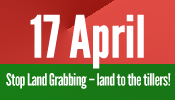
Stop Land Grabbing – Land to the tillers! – Global day of peasant struggle (EN, ES, FR)
Food security hostage to trade in WTO negotiations: UN right to food expert www.srfood.org
http://viacampesina.org
http://farmlandgrab.org http://www.grain.org
http://www.oaklandinstitute.org
List of Activities for 17th April, 2012 around the world: http://bit.ly/HGwIL8
(Jakarta, 2 March 2012) April 17 is the International Day of Peasant Struggle, commemorating the massacre of 19 peasants struggling for land and justice in Brazil in 1996. Every year on that day actions take place around the world in defence of peasants and small-scale farmers struggling for their rights.
In recent years, we have suffered from the implementation of new policies and of a new development model based on land expansion and land expropriation, commonly known as land grabbing. Land grabbing is a global phenomenon led by local, national and transnational elites and investors, with the participation of governments and local authorities, in order to control the world’s most precious resources.
Land grabbing has resulted in the concentration of the ownership of land and natural resources in the hands of large-scale investors, plantation owners, logging, hydro-power and mining companies, tourism and real estates developers, port and infrastructures authorities, and so forth. This has led to the eviction and displacement of the local populations – usually farmers -, the violation of human rights and women rights, increased poverty, social fracture and environmental pollution. Land grabbing goes beyond traditional North-South imperialist structures: the involved transnational corporations are based in the United States, Europe, Chile, Mexico, Brazil, Russia, India, China, South Africa, Thailand, Malaysia, Indonesia and South Korea, among others.
Financial institutions such as private banks, pension and other investment funds have become powerful actors in land grabbing, while wars continue to be waged to seize control of natural wealth. The World Bank and regional development banks are facilitating land and water grabs by promoting corporate-friendly policies and laws, providing capital and guarantees for corporate investors, and fostering an extractive, destructive economic development model. Meanwhile the World Bank and some other institutions have proposed seven principles of Responsible Agricultural Investment (RAI) that are supposed to prevent abuses but in fact legitimize farmland grabbing by corporate and state investors. La Via Campesina and key allies have protested against this initiative for the past two years.
Land grabbing is a global phenomenon based on the corporate domination of agriculture through control over land, water, seeds and other resources. It is justified by many governments and policy think tanks through claims that agribusiness will modernize backward agricultural practices and guarantee food security for all. However widespread those claims may be, they have been shown to be entirely false in the real world.
The key players behind land grabbing prioritize profit over people’s well-being: they produce agrofuels if this is more profitable than food production, and they export their food production if this is more lucrative than selling it at home. In this race to profit, the corporate sector is increasing its control over food production systems, monopolizing resources, and dominating decision making processes. Business lobbies have strong political influence that often overrides democratic institutions; in addition, they act with the complicity of local and national elites (traders, politicians and community leaders) who fail to protect their own people from predation.
Land grabbing has been dispossessing peasants, small-scale farmers and indigenous peoples, especially women and the youth, from their sources of livelihoods. It is also ruining the environment. Indigenous peoples and ethnic minorities are being expelled from their territories by armed forces, increasing their vulnerability and in some cases even leading to slavery. Market-based, false solutions to climate change such as the fashionable concept of „Green Economy“ are forever finding new ways to alienate local communities from their lands and natural resources.
Therefore La Via Campesina calls on all of its members and allies, fisher-folk movements, agricultural workers organizations, students and environmental groups, women organizations and social justice movements to organize actions around the world on April 17 in order to display massive popular resistance to land grabbing and highlight the struggle against corporate control over land and natural resources.
Let’s unite and fight:
- To stop land grabbing and reclaim grabbed land – the land should be in the hands of tillers.
- To implement genuine agrarian reform in order to bring about social justice in rural areas.
- To end the control over billions of people’s lives exercised by a few investors and transnational companies.
- To oppose the principles of “responsible agricultural investment” (RAI) proposed by the World Bank as it can never be “responsible” for investors and corporations to grab farmers‘ land.
- To strengthen the agriculture production model based on family farming and food sovereignty.
On April 17, groups and people are invited to organize a direct action, a film screening, a farmers market, a land occupation, a debate, a protest, an art exhibition, or any other event highlighting the same goal.
- Inform us about your plans by sending an email to viacampesina@viacampesina.org
- Subscribe to our special mailing list by sending a blank email to via.17april-subscribe@viacampesina.net
- Send us reports, pictures and videos of your action!
- We will publish the map of actions around the world on www.viacampesina.org
- Join our facebook event
Poster Action: 17 April: International Day of Peasant Struggle
Denounce land grabbing!
Wherever you are, fill in this poster with the name of your local land grabbers and send us a picture of what you are doing to protest with this poster.
E-mail: viacampesina@viacampesina.org
http://www.nyeleni.org/DOWNLOADS/newsletters/Nyeleni_Newsletter_Num_9_FR.pdf
http://media.oaklandinstitute.org/publications
http://media.oaklandinstitute.org/content/tackling-global-food-crisis-mission-unaccomplished
http://www.facebook.com/Cloc Via Campesina
http://www.facebook.com/oak.institute
http://www.facebook.com/soilassociation
http://www.facebook.com/organicconsumers
http://www.facebook.com/FoodandWaterWatch
https://twitter.com/#!/FarmPolicy
http://www.facebook.com/The Institute for Agriculture and Trade Policy
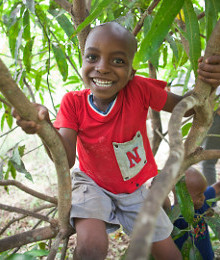
High level policy dialogue between the Alliance for a Green Revolution in Africa (AGRA)
http://allafrica.com
http://www.agra-alliance.org
http://kofiannanfoundation.org
This photo story highlights key moments in a policy dialogue that involved small scale farmers and representatives of the Alliance for a Green Revolution in Africa (AGRA). Over one hundred people participated in this unprecedented event:
DOWNLOAD PDF http://pubs.iied.org/pdfs/G03349.pdf
IIED, APPG on Agroecology, CNOP, Kene conseils, Centre Djoliba, IRPAD
IIED code: G03349
Published: Apr 2012 – IIED
Areas: Ghana, Mali, Burkina Faso, Senegal, Benin
Topics: Agriculture & Food, Participation
Details: Project info
Language: English
This photo story highlights key moments in a policy dialogue on agricultural research for development that involved small scale farmers and representatives of the Alliance for a Green Revolution in Africa (AGRA). Over one hundred people participated in the policy dialogue. This unprecedented event was chaired by the UN Special Rapporteur on the Right to Food and took place on 1st to 3rd February 2012 in Accra (Ghana).
The Human Right to Water – World Water Day 2012
http://www.internationalrivers.org
http://www.unwater.org/worldwaterday
http://www.sankatmochanfoundationonline.org/save_ganga.html
News(23.03.2012): NEW DELHI: Environmentalist GD Agarwal, 80, who is on a fast-unto-death since January 15 to save the Ganga river, on Friday agreed to end his fast after the government agreed to his demands, his supporters said. „He will …See more
On the occasion of World Water Day 2012 the Sankat Mochan Foundation (SMF), an organisation working for the cause of Ganga for about three decades, is going to launch a new online campaign -STOP the Sewage: Clean Ganga NOW.
World Water Day has been observed on 22 March since 1993 when the United Nations General Assembly declared 22 March as World Day for Water.[1]
This day was first formally proposed in Agenda 21 of the 1992 United Nations Conference on Environment and Development (UNCED) in Rio de Janeiro, Brazil. Observance began in 1993 and has grown significantly ever since; for the general public to show support, it is encouraged for the public to not use their taps throughout the whole day, the day has become a popular Facebook trend.
The Ganges , is a trans-boundary river of India and Bangladesh. The 2,525 km (1,569 mi) river rises in the western Himalayas in the Indian state of Uttarakhand, and flows south and east through the Gangetic Plain of North India into Bangladesh, where it empties into the Bay of Bengal. By discharge it ranks among the world’s top 20 rivers.
Water – The Thread of Life, a group exhibition of Contemporary Artists, Arghyam, March 21-30, 2012, Karnataka Chitrakala Parishath, Bangalore http://www.indiawaterportal.org/event/24761
Welcome to MC Mehta Environmental Foundation
Current Projects The Plight of the Ganga
M. C. Mehta, “In the Public Interest”
We believe that if, all of us unite and take proper care in protection and conservation of the limited natural resources, we can give our children a better tomorrow. It is possible only through community participation and awareness.
MCMEF has been actively involved in creating awareness among NGO’s,Lawyers,Scientists,Senior Officials, Academicians,Students & Youth through training and capacity building programmes, seminars,workshops,declamation contests and other grass roots level activities.
This ancient and magnificent river is now under serious threat due to the construction of hydroelectric dams along the upper reaches of the Ganga. This will devastate local ecology, wildlife and communities by tunneling in river-flow, effectively drying up the Ganga in these areas.
Further downstream, the Ganga is already suffering from the effects of extensive deforestation, and continues to be used as a dumping ground for untreated industrial and domestic waste. Religious tourism has also led to the proliferation of polythene waste in her waters.
As a result of climate change, the Gangotri glacier is rapidly receding. This will have profound implications on India’s water and food security.
# video Anna Hazare on G D Agrwal’s condition Anna ji speaking on G.D. Agrwal’s condition. He will also be going to meet G.D.Agrwal later today. || अन्ना जी, जी.डी. अग्रवाल के स्वास्थ्य के बारे में बात करते हुए| वो आज शाम को उनसे मिलने भी जायेंगे|
http://www.savegangamovement.org
http://www.indiawaterportal.org
http://www.indiaenvironmentportal.org.in
http://chimalaya.org/2012/03/20/anxious-wait-for-scientists-on-rio20-talks
http://www.scidev.net/en/science-and-innovation-policy/science-at-rio-20
http://chimalaya.org/2011/06/23/bringing-back-himalayan-watermills-to-life
Previous related #article #videos Hindol Deb – Swar Ganga Music Foundation
http://en.wikipedia.org/wiki/Right_to_water as a human right under international law.
http://www.ohchr.org/EN/Issues/Development/Pages/DevelopmentIndex.aspx
http://en.wikipedia.org/wiki/Environmental_law
http://en.wikipedia.org/wiki/Environmental_impact_assessment
chinadialogue http://www.chinadialogue.net
The current surge in land acquisitions http://farmlandgrab.org by foreign countries and private companies could lead to regional tensions over water rights, warns a new report by the Stockholm International Water Institute published last week. ä��页 home > 每日星球 the daily planet Global land deals suck rivers dry Beth Walker
Another water battle looming Pakistan is gearing up for a new fight with India, reports Athar Parvaiz from Ladakh. At the centre of the latest row is a dam funded by international efforts to tackle global warming. http://www.chinadialogue.net/4825-Another-water-battle-looming
Fighting India’s mega-dams Popular protests against the construction of a vast network of dams in the Brahmaputra valley have gathered impressive momentum. Tanmoy Sharma reports from Assam. http://www.chinadialogue.net/ 4799-Fighting-India-s-mega-dams
River Interlinking India Most environmentalists around India heaved a sigh of relief on Friday when Pranab Mukherjee, the country’s Finance Minister, did not say a word about the plan to interlink India’s rivers, nor allocate any money for that purpose.

UN – Access to water is a human right, not charity
http://plattformbelomonte.blogspot.com
International Day of Action for Rivers
We are already gearing up for March 14th 2012, which will mark the 15th annual International Day of Action for Rivers.
Last year saw the largest celebration of our world’s rivers by thousands of us who fight to keep them healthy and free flowing. Events took place in 36 countries – the broadest geographical participation in the last 14 years.
The theme of creativity shone through last year’s events. Around the world, from mountaintops to ocean shores, on many rivers and city streets in between, March 14th was filled with music, artwork, dancing and prayer. With such incredible momentum from last year, we wanted to start thinking about goals, ideas and possible themes for the 2012 International Day of Action for Rivers.
We would love to hear from you. Please post your ideas, possible themes, events that you are already planning, or anything you have to say! If you have any questions, please post them on Facebook or email dayofaction@internationalrivers.org.
http://www.facebook.com/DayofActionforRivers
P.S. To get you inspired take a look back at the last few years of the International Day of Action for Rivers, in pictures.
Greenwashing dams is high on the agenda
– Activists Take on Greenwashing at the 6th World Water Forum
One corporate „solution“ on the agenda at this year’s meeting is the Hydropower Sustainability Assessment Protocol (HSAP), a voluntary, non-binding scorecard that allows dam builders to greenwash the social and environmental performance of each other’s projects. HSAP is more about protecting the right to build large dams than protecting the rights of the millions of people who depend on rivers for their daily needs. HSAP does nothing to require developers to follow high social and environmental standards.
- Read Zach’s most recent blog from Marseille: „Civil Society Rejects Greenwashing of Dams at World Water Forum„
Stay tuned for more direct updates from Marseille and news about the many different events surrounding the 6th World Water Forum. https://twitter.com/worldwaterforum
Water is a human right
Press Statement UN Resolution 64/292 The Right to Water and Sanitation
UN united to make the right to water and sanitation legally binding
“I wholeheartedly welcome this resolution from the Human Rights Council, which signals a global agreement that access to water and sanitation are no longer matters of charity,” Ms. de Albuquerque said. “The right to water and sanitation is a human right, equal to all other human rights, which implies that it is justiciable and enforceable. Hence from today onwards we have an even greater responsibility to concentrate all our efforts in the implementation and full realisation of this essential right.”
The Right to Water is the Right to Life
When the United Nations’ Universal Declaration of Human Rights was drafted over 50 years ago, water was not included in the list of protected rights. The rationale was simple. Water, like air, was considered so fundamental to life that naming a right to it would have been redundant.
Times have changed.
Despite the everyday dependence we have on water, access to fresh water is far from equal or guaranteed. Of the world’s population of 6 billion, at least 1.5 billion people do not have access to clean drinking water and another 4 billion lack adequate sanitation services. In parts of the developing world, a child dies every 15 seconds due to easily preventable water-related diseases.
Global water corporations, international financial institutions, trade agreements, governments and even parts of the United Nations have been promoting privatization and commodification of water as a way to deal with this crisis.
But the evidence shows that privatization leads to rising water rates, unclean water – and of course, soaring corporate profits. Water should be safe, affordable, and accessible to everyone – not just those who can afford to pay.
Time for Action
Without action, inequality and human suffering will only worsen. The UN predicts that by 2025, the number of people deprived of water will climb to over 3 billion. Such disparity is an affront to the world’s shared humanity and threatens our future security. Water scarcity is a common source of conflict in this new century and promises to become more so. And for many developing nations, the lack of proper infrastructure to deliver clean water only perpetuates and worsens poverty.
The only way to solve this crisis is to ensure that water remains under public control. Governments must enshrine the human right to water and protect the eco-systems that people and nature rely upon.
Friends of the Right to Water
In recognition that water is the essence of life, a group known as “The Friends of the Right to Water” (FRW) has begun an international campaign seeking to affirm the universal right to water. Building upon General Comment No. 15 (GC 15) adopted in November 2002 by the UNCommittee on Economic, Social and Cultural Rights, the FRW is inviting organizations to join in the effort to secure the right to water.
General Comment 15 notes that the right to water has already been established in a wide range of international documents and underscores the fundamental importance that water plays in the realization of all other human rights.
As it stands, all 144 signatories to the UN Covenant on Economic, Social and Cultural rights are bound by the pronouncements of GC 15. The problem is that countries can ignore their responsibilities because there is no effective means of holding them to account. The campaign proposed by the Friends of the Right to Water is working to create a binding means to hold these states accountable.
Water belongs to the earth and all species andis an inalienable human right that must not be appropriated for profit.
— Maude Barlow,
National Chairperson of The Council of Canadians and co-founder of The Blue Planet project.
http://www.foodandwaterwatch.org/water
http://www.blueplanetproject.net/RightToWater/human_right.html
http://farmlandgrab.org Governments and corporations are buying up farmland in other countries to grow their own food – or simply to make money.
Increasing demand and climate change threaten global water supplies: At the moment, 70 per cent of freshwater is already being used for agricultural purposes. – UN report http://shar.espaEZB
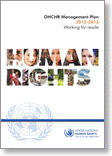
OHCHR´s Management Plan 2012-2013
United Nations Human Rights
“[W]e are aware of the many challenges we face. As daunting as the road ahead may be, my Office will steadfastly pursue our goals and stay the course. The focus of this report is “Working for Results” and this is precisely what we intend to achieve in this biennium.” – UN High Commissioner for Human rights Navi Pillay’s foreward to her Office’s management plan 2012-13: http://bit.ly/zy5yVh
Like, share and give us feedback!
The “OHCHR Management Plan 2012-2013 ” articulates OHCHR’s priorities, expected accomplishments and strategies for the biennium. The Plan introduces OHCHR’s programme of work, both at Headquarters and in the field and presents OHCHR’s total budget and funding requirements for 2012-2013.
International human rights law refers to the body of international law designed to promote and protect human rights at the international, regional and domestic levels. As a form of international law, international human rights law is primarily made up of treaties, agreements between states intended to have binding legal effect between the parties that have agreed to them; and customary international law, rules of law derived from the consistent conduct of states acting out of the belief that the law required them to act that way. http://en.wikipedia.org/International_human_rights_law
The Guiding Principles provide a solid foundation for the implementation of those elements in the standards and practices which govern the full range of business activities and which ultimately lead to a socially sustainable globalization.
Reflecting on the rapid development of the relationship between business and human rights, the Chair of the Working Group, Margaret Jungk said it was not long ago that the prevailing view in the business community was that “human rights is not our concern”. Jungk paid tribute to the work of the former Special Representative of the Secretary-General on business and human rights, John Ruggie, saying it had taken great commitment to achieve the “traction which led to the first generation of progress and achievements in the field of human rights and business.”
“The second-generation challenge,” Jungk said, “is to have the Guiding Principles implemented.” Moving from agreement to implementation will be challenging, she predicted, because “99.9 per cent of the world have not yet heard of the Principles”.
Welcome to the portal about http://www.business-humanrights.org/SpecialRepPortal/Home
the work of the Special Repre- sentative of the United Nations Secretary-General on business & human rights, John Ruggie.
http://www.un.org/en/documents/udhr/index.shtml
http://www.minesandcommunities.org/
http://www.illegal-logging.info/
http://farmlandgrab.org/
http://www.ohchr.org
http://twitter.com/unrightswire
http://www.youtube.com/user/UNOHCHR
http://www.facebook.com/unitednationshumanrights
http://www.ohchr.org/EN/NewsEvents/Pages/InternetMustBeFree.aspx
Previous #Articles > #Human Rights #Human Rights Day 2011

FOOD: WTO „must address“ food security
UPDATE 30.01.2012 Haircut Negotiations – Hedge Funds Bet on Profits from Greek Debt Talks SPIEGEL ONLINE – http://www.spiegel.de/international/topic/debt_crisis
The negotiations over the Greek debt haircut are becoming increasingly suspenseful, with euro-zone finance ministers and the IMF pushing investors to accept greater losses. Hedge funds, more than any others, stand to profit, and are betting that the voluntary debt rescheduling will fail. By Stefan Kaiser http://www.facebook.com/spiegelinternational
Coming Events:
7 February 2012: European Economic and Social Committee sustainability conference
Olivier De Schutter will address Workshop 1, entitled „food, water and energy for everyone“, held between 4.30 and 6.00 pm, of the Conference of the European Economic and Social Committee (EESC) Go sustainable, be responsible! European civil society on the road to Rio+20.
30 January 2012: No enough food, energy for World as population increases: U.N. report | Morocco World News http://moroccoworldnews.com
30 January 2012: With new blueprint in hand, Ban calls for action to chart more sustainable future http://www.un.org/apps/news/sustainable development
http://www.irinnews.org/Report WTO
http://www.ourworldisnotforsale.org/
“ Trade and food security is in effect a WTO issue, and so there is great frustration within the UN that this enormously restricts the role of, for example, the Food and Agriculture Organization-based Committee on Food Security „
Olivier de Schutter, UN Human Rights Council’s Special Rapporteur on the Right to Food, says: “Food security is the elephant in the room, which WTO [the World Trade Organization] must address”, pointing out that food import bills had soared by a third for poor countries this year.
WTO defending an outdated vision of food security [16 December 2011] Geneva – „Globalization creates big winners and big losers. But where food systems are concerned, losing out means sinking into poverty and hunger. A vision of food security that deepens the divide between food-surplus and food-deficit regions, between exporters and importers, and between winners and losers, simply cannot be accepted.
Food security hostage to trade in WTO negotiations: UN right to food expert [16 November 2011] Geneva – „The world is in the midst of a food crisis which requires a rapid policy response. But the World Trade Organisation (WTO) agenda has failed to adapt, and developing countries are rightly concerned that their hands will be tied by trade rules.”
Is the Doha round delivering on poverty?
Food aid on the back burner as WTO talks collapse
Some issues WTO needs to address in agriculture:
Ceilings on subsidies: Current ceilings on how much the US and the EU can spend on subsidies that distort trade are still rather high
Cotton subsidies: The US has still not fully complied with a WTO ruling in 2009 to remove subsidies for its cotton producers. African farmers could have gained from a 3.5 percent average increase in world cotton prices, if the US had cut subsidies.
Biofuel Subsidies : Not covered yet. A new study found that US ethanol subsidies may have artificially inflated maize prices by as much as 17 percent in 2011. Source: ICTSD
Some Further Sources such as http://www.un.org/en/documents/udhr/index.shtml
Read http://www.srfood.org/ Press release, „Eco-Farming Can Double Food Production in 10 Years, says UN Report“, 8 March 2011.
FARMAfrica FARM-Africa http://www.farmafrica.org.uk
Research by American Prof of International Development shows that small farms in Africa could be the solution to hunger http://www.stanforddaily.com/2012/01/13/
http://www.righttofood.org/ http://en.wikipedia.org/Right_to_food
http://cesr.org/index.php Center for Economic and Social Rights
http://www.facebook.com/World Fair Trade Organization (WFTO)
The G20 & Food Security – missing the big picture? World Trade
https://www.facebook.com/boellstiftung
http://www.business-humanrights.org/Categories/Issues/Other/Righttofood
http://www.stwr.org/imf-world-bank-trade/
http://en.wikipedia.org/wiki/Millennium_Development_Goals
http://donttradeourlivesaway.wordpress.com/
http://www.oaklandinstitute.org/issues
http://farmlandgrab.org/Olivier De Schutter: “Principles for responsible investment in agriculture”
http://www.ourworldisnotforsale.org/en/signon/stop-wto-s-doha-development-round-and-other-FTAs
The right to food, and its variations, is a human right derived from the International Covenant on Economic, Social and Cultural Rights (ICESCR). The UN Special Rapporteur on the right to food in 2002 defined it as follows: http://en.wikipedia.org/wiki/Right_to_food
http://www.amnesty.org/en/economic-social-and-cultural-rights
Join the energy [r]evolution! http://www.energyblueprint.info/ The report: ‘Energy [R]evolution: A Sustainable World Energy Outlook’, provides a detailed practical blueprint for cutting carbon emissions while achieving economic growth by replacing fossil fuels with renewable energy and energy efficiency. This phase-out of fossil fuels offers substantial benefits such as energy security, independence from world market fuel prices as well as the creation of millions of new green jobs.

Lifestyle: Towards a future of life in harmony with nature.
Biodiversity talks end with call for ‚urgent‘ action
www.bbc.co.uk/news/science-environment
For more information visit: www.cbd.int/2011-2020 , www.cbd.int/agro/food-nutrition
People’s Coalition on Food Sovereignty: www.foodsov.org/take-action
The Convention on Biological Diversity (CBD), known informally as the Biodiversity Convention, is an international legally binding treaty. The Convention has three main goals: 1. conservation of biological diversity (or biodiversity);2. sustainable use of its components; and 3. fair and equitable sharing of benefits arising from genetic resources. In other words, its objective is to develop national strategies for the conservation and sustainable use of biological diversity. It is often seen as the key document regarding sustainable development. MORE
The Millennium Development Goals (MDGs) are eight international development goals that all 192 United Nations member states and at least 23 international organizations have agreed to achieve by the year 2015. They include eradicating extreme poverty, reducing child mortality rates, fighting disease epidemics such as AIDS, and developing a global partnership for development. MORE
As the United Nations and the Ministry of Environment of Japan prepare to globally launch the Decade of Biodiversity in Kanazawa, Japan, governments, businesses and ordinary citizens are being asked to do their bit to save our planet’s delicate ecosystem over the next 10 years.
With the COP17 summit in Durban concluding with hopes of a binding agreement on carbon emissions, there is hope that the Decade of Biodiversity can build on this achievement.
Biodiversity is of vital importance to us all as it underpins a wide range of ecosystem services on which we depend. It provides for food security, human health, clean air and water, it contributes to local livelihoods and economic development and is essential in the fight against poverty.
Yet despite its huge importance, the planet’s biodiversity is being lost at an unprecedented rate.
Throughout the United Nations Decade on Biodiversity (2011-202) governments are encouraged to develop, implement and communicate the results of national strategies for implementation of the Strategic Plan for Biodiversity.
However, the initiative will not be without its challenges as governments and business strapped for cash in the current recession deal with a multitude of issues at the same time. So what can realistically be achieved over the next 10 years to prevent the loss of biodiversity? What can governments, business and you, the individual do to help the cause?
The involvement of a wide range of stakeholders, including children and youth, will be key to the success of the Decade. Already the United Nations has recognized the vital importance of our children’s education to the future of the planet. The Secretariat of the Convention on Biological Diversity hosts and coordinates The Green Wave, a project to raise awareness and educate young people – tomorrow’s leaders and citizens – on biodiversity and on actions to preserve life on Earth. Each year, The Green Wave contributes to worldwide celebrations of the International Day for Biological Diversity (IDB).
The Organisation for Industrial, Spiritual and Cultural Advancement (OISCA) has been participating in The Green Wave all over the world since 2009. This year 2011, the International Year of Forests and the starting year of United Nations Decade on Biodiversity, over 14,000 children and adults at 105 OISCA sites in 13 countries have taken part in the campaign.
webTV – Tokyo: In a live and interactive web TV programme from Tokyo, two of the key figures driving the response to the planet’s loss of biodiversity will be answering your questions about the United Nations Decade on Biodiversity. http://www.cbd.int/2011-2020/media/webtv_jp.shtml
Yasuaki Nagaishi, Secretary General of OISCA (Organisation for Industrial, Spiritual and Cultural Advancement) will join with Ahmed Djoghlaf, Executive Secretary of the Convention on Biological Diversity at 20:30 (local time) on Tuesday December 20th to answer your questions.
http://www.350.org/ http://www.facebook.com/350.org
http://en.wikipedia.org/Kyoto Protocol
Previous #articles, #videos:
Japan – Nagoya Biodiversity Agreement
CBD – UN Convention on Biological Diversity
Eradicating Ecocide – Rights for the Planet
http://www.facebook.com/UNBiodiversity
http://www.facebook.com/United Nations Millennium Campaign
http://www.facebook.com/iucn.org

NATIONAL CONFERENCE ON „SUFISM“
Conference on Sufism „as mainspring of Love, Peace and Harmony“
Opening Date: Wednesday, 23 November 2011
Closing Date: –
Additional Information : at 3.00 p.m at Lok Virsa Islamabad
The Gilgit Agency was a political unit of British India, which administered the northern half of the Princely state of Jammu and Kashmir. The Gilgit Agency was created in 1877 and was overseen by a political agent of the Governor-General of British India. The seat of the agent was Srinagar. In 1935, the Gilgit Agency leased the territory comprising the agency from the Maharaja of Jammu and Kashmir, Hari Singh, for a period of sixty years. This lease and the Gilgit Agency ceased to exist when Pakistan and India became independent countries in 1947. HERE
LOK VIRSA – AN INTRODUCTION :
Lok Virsa (The National Institute of Folk & Traditional Heritage) works towards creating an awareness of cultural legacy by collecting, documenting, disseminating and projecting folk & traditional heritage. Surveys and documentation of traditional culture is central to the objectives of the institute. The Lok Virsa delve into and surveys are conducting by mobile recording and filming units. Dedicated individuals undergo the rigorous field work, to bring back valuable results to the central archives and production facilities housed at the Lok Virsa complex at Garden Avenue Shakarparian Hills Islamabad.
Lok Virsa is an affiliate member of UNESCO, The World Craft Council, International Council of Music, The Asian Cultural Centre for UNESCO, The International Council of Museums and similar other world organizations for the dissemination of art products abroad.
http://www.rferl.org/section/Pakistan
http://www.facebook.com/Gilgit Baltistan
http://www.facebook.com/kashmirsufismsociety
http://www.facebook.com/pakistanyouthforumpage
http://hunzalandslide.blogspot.com/
http://www.facebook.com/Indian Youth Climate Network(IYCN)
http://de.wikipedia.org/Hunza Burusho people, Hunza-Mythos
http://en.wikipedia.org/Former State of Hunza (princely state)
http://www.facebook.com/International Organization of Folk Art (IOV)
https://www.facebook.com/unesco Educational, Scientific and Cultural Organization (UNESCO)
Zamana is a public interest space for learning, reflection, and action on Pakistan.
Explore: Whose Land? Whose Food?
In its first issue, Zamana delves into the thorny subject of land and food rights in Pakistan. The focus is prompted by recent news reports that amidst rising hunger and food crises, the Government of Pakistan plans to give away thousands of acres of farmland to Saudi Arabia and other foreign investors. Zamana invites more commentaries on this issue. Please send your perspective to info @ zamana.org. Further Infos: http://farmlandgrab.org/
Act: Our Land, Our Food, Pakistan is not for Sale
Sign the petition to raise your voice against land leasing to foreign clients.
UPDATE 23.11.2011 Final Declaration: Stop Land-Grabbing Now!
The Oakland Institute http://www.oaklandinstitute.org
More than a hundred civil society organizations have submitted a document entitled „Time to Act – Agriculture and Food Security and Rio+20“ as input to the UN Conference on Sustainable Development (the Rio+20 conference). The submission outlines the key actions that are needed to achieve viable food systems based on agroecological and other forms of sustainable production.
http://www.facebook.com/oak.institute
http://www.ourworldisnotforsale.org/members
http://www.facebook.com/road2rio20
A global youth mobilization towards the UN Conference on Sustainable Development (Rio+20).
http://www.timetoactrio20.org/ 20 years after the Rio Earth Summit, the planet is in a deeper environmental, energy and financial crisis.The United Nations Conference on Sustainable Development (UNCSD) in Rio de Janeiro in 2012 might be just another high-level conference stating the need to eradicate hunger and poverty, stop climate change, the loss of biodiversity, soil erosion and other serious environmental problems – and then, after the conference, life goes on as before. But it can be different. It has a historical opportunity to make important decisions and agree on actions that actually do eradicate hunger and poverty, and save the environment. It’s time to act!
Many civil society organizations have signed on to a document with proposals on issues linked to food and agriculture for the Rio2012-conference. Download the document (PDF) HERE. Download the document in Word format (doc) HERE.
If you have comments and suggestions for changes in this document, and if your organization wants to support the document, please send a mail to rio2012agcso@gmail.com
The document is available in English, Spanish, French and German
UPDATE 24.11.2011 @guardian – Africa’s great ‚water grab‘ Foreign investors aren’t just after land in Africa. Access to water is essential – which can bring them into direct competition with the needs of local communities.
This article is about a right to water as a human right under international law. For a discussion of water usage laws in common law, see Water right. http://en.wikipedia.org/wiki/Right_to_water
WORLD CONFERENCE ON HUMAN RIGHTS
Vienna, 14-25 June 1993
VIENNA DECLARATION AND PROGRAMME OF ACTION
Note by the secretariat
Attached is the text of the Vienna Declaration and Programme of Action, as adopted by the World Conference on Human Rights on 25 June 1993.
1. The World Conference on Human Rights reaffirms the solemn commitment of all States to fulfil their obligations to promote universal respect for, and observance and protection of, all human rights and fundamental freedoms for all in accordance with the Charter of the United Nations, other instruments relating to human rights, and international law. The universal nature of these rights and freedoms is beyond question.
… Emphasizing that the Universal Declaration of Human Rights, which constitutes a common standard of achievement for all peoples and all nations, is the source of inspiration and has been the basis for the United Nations in making advances in standard setting as contained in the existing international human rights instruments, in particular the International Covenant on Civil and Political Rights and the International Covenant on Economic, Social and Cultural Rights…
http://www.unhchr.ch/huridocda/huridoca.nsf/%28symbol%29/a.conf.157.23.en
http://www.amnesty.org/en/economic-social-and-cultural-rights #video

Int. Peasant Conference : Stop the land grab
Threat to Food Security http://allafrica.com/environment/
http://farmlandgrab.org/ http://www.business-humanrights.org/
UPDATE 19.11.2011 Center for Media and Democracy
http://www.facebook.com/CenterforMediaandDemocracy
https://www.facebook.com/FoodRightsNetwork
Join the Food Rights Network in adding what you know about the „Secret Farm Bill“ to the SourceWatch article. http://sourcewatch.org/Secret Farm Bill
Blogger, Attorney http://www.FarmPolicy.com
Contacts International Peasant Conference:
CNOP/VIA CAMPESINA Kalabancoura rue 200 porte 727 BP E 2169 Bamako/Mali
Chantal Jacovetti: chantal.jacovetti@wanadoo.fr Phone : 00223.76.81.87.93/64.86.89.26
Lamine Coulibaly: laminezie@gmail.com Phone: Tel: +223 76 17 09 79/ 66 83 63 14
Via Campesina (from Spanish la vía campesina, the campesino way, or the Peasants‘ Way) describes itself as „an international movement which coordinates peasant organizations of small and middle-scale producers, agricultural workers, rural women, and indigenous communities from Asia, Africa, America, and Europe“. It is a coalition of over 148 organizations, advocating family-farm-based sustainable agriculture and was the group that first coined the term „food sovereignty“. Food sovereignty refers to the right to produce food on one’s own territory. Via Campesina has carried out a Global Campaign for Agrarian Reform since 1999, in opposition to market-led agrarian reform. MORE
Food security hostage to trade in WTO negotiations: UN right to food expert
[16 November 2011] Geneva – „The world is in the midst of a food crisis which requires a rapid policy response. But the World Trade Organisation (WTO) agenda has failed to adapt, and developing countries are rightly concerned that their hands will be tied by trade rules.” http://www.srfood.org/index.php
Press invitation 17-19 November, Mali (Bamako, 28 October 2011) The farmers of the National Coordination of Farming Organizations (CNOP) in Mali and the international farmers’ movement Via Campesina hereby invite the press to cover the first international farmers’ conference whose objective is tostrengthen the fight against the land grabs which are rife in Africa and other parts of the world.
The conference will be held in Sélingué from 17 to 19 November 2011, and will bring together almost 200 farmers affected by land grabs as well as numerous other participants, including researchers, political figures, and NGOs resisting the unprecedented land-grab offensive by large businesses and hedge funds, among others, that compromises the ability of people to feed themselves.
Affected populations from all over the world will have the opportunity to make their voices heard, and strategies will be developed to end the seizure of farmland at the expense of the rural family farming that feeds 80% of the African population.
The conference will conclude on 20 November with a visit by a delegation to the Office du Niger’s land in Kolongo, a year after the first farmers’ meeting about this matter. There, journalists will be able to speak to farmers engaged in the resistance, local authorities, and experts on land issues.
The Oakland Institute As farmer groups and civil society organizations from around the world gather at the International Conference on Land Grabs [DRAFT PROGRAMME http://viacampesina.org/en/index.php] from November 17-20 2011 in Nyeleni, Mali, The Oakland Institute and the National Farmers Organisation Coordination (CNOP) of Mali are releasing a new report on land grabs in the west African country.
Comprendre les Investissements Fonciers en Afrique: Rapport Mali [http://www.oaklandinstitute.org/comprendre-les-investissements-fonciers-en-afrique-rapport-mali] is an updated, French version of the Oakland Institute’s Understanding Land Investment in Africa: Mali report that was published earlier this year.
This comprehensive report analyses the current trend of agricultural land investments in Mali, revealing that by the end of 2010 at least 544,567 hectares of fertile land have been leased or were under negotiation for lease in Mali. Despite the limited availability of arable land in Mali and dramatic hunger figures, more than 40% of deals will devote land to agrofuel crops-which are unlikely to benefit those suffering from hunger in Mali. These land acquisitions involve violent and flagrant abuses of human rights and the report documents attacks on smallholder populations in the irrigated agricultural zones of the Office du Niger. Most of the large-scale land acquisitions are concentrated in state-owned lands within the large, riverine delta of the Office du Niger, where informal customary rights of the local people are not protected by law, and are not recognized by public officials.
Olivier De Schutter — UN Special Rapporteur on the Right to Food — recently released a report extolling the benefits of ecological agriculture. In this short radio interview, he explains how today’s scientific evidence demonstrates that agro-ecological farming methods outperform the use of chemical fertilizers in boosting food production where the hungry live — especially in unfavorable environments.
While the government of Mali justifies the massive leasing of lands with the need to „modernize“ Malian agriculture, plans for large-scale irrigated agriculture pose great risks to the survival of populations dependent on the water flows of the Niger River in Mali as well as in the rest of West Africa, where over 100 million people depend on the river for their livelihoods.
America, it’s your responsibility to decide who will emerge victorious from this battle of the bulge. Let’s meet the contestants — the American consumer, the independent farmer and the corporate fat cat. Watch Food & Water Watch’s The Biggest Farm Bill Loser and go to http://www.foodandwaterwatch.org to demand a Fair Farm Bill!
Download the report: In French: http://www.oaklandinstitute.org/comprendre-les-investissements-fonciers-en-afrique-rapport-mali In English: http://oaklandinstitute.org/understanding-land-investment-deals-africa-mali
Latest Articles – #farmlandgrab
World Social Forum Dakar – Sign the Dakar appeal against land grabbing!! #video
Gegenrede: Offener Brief von Jean Ziegler #video
Eradicating Ecocide – Rights for the Planet #video
Climate Change, Food Sovereignty & Security #video
Africa – Green Agriculture & Climate Change #video
Sustainability and Equity: A Better Future for All
Kate Holt/IRIN
The 2011 Human Development Report, Sustainability and Equity: a Better Future for All, says bold steps must be taken to reduce environmental risks and inequalities in Africa. http://allafrica.com/environment/
According to the 2011 Human Development Report, released by the United Nations Development Programme, Africa’s progress in human development over the next four decades could outpace any other region of the world, but environmental challenges could threaten the continent’s advancement, possibly reversing it.
UPDATE 19.11.2011 Final Declaration: Stop Land-Grabbing Now!
by The Oakland Institute – Nyeleni, November 19, 2011
We, women and men peasants, pastoralists, indigenous peoples and their allies, who gathered together in Nyeleni from 17-19 November 2011, are determined to defend food sovereignty, the commons and the rights of small scale food providers to natural resources. We supported the Kolongo Appeal from peasant organizations in Mali, who have taken the lead in organising local resistance to the take-over of peasants‘ lands in Africa. We came to Nyeleni in response to the Dakar Appeal, which calls for a global alliance against land-grabbing.
In the past three days, peasants, pastoralists and indigenous peoples have come together from across the world for the first time to share with each other their experiences and struggles against land-grabbing. In Mali, the Government has committed to give away 800 thousand hectares of land to business investors. These are lands of communities that have belonged to them for generations, even centuries, while the Malian State has only existed since the 1960-s. This situation is mirrored in many other countries where customary rights are not recognised. Taking away the lands of communities is a violation of both their customary and historical rights.
Secure access to and control over land and natural resources are inextricably linked to the enjoyment of the rights enshrined in the Universal Declaration of Human Rights and several regional and international human rights conventions, such as the rights to an adequate standard of living, housing, food, health, culture, property and participation. We note with grave concern that states are not meeting their obligations in this regard and putting the interests of business interests above the rights of peoples.
Land-grabbing is a global phenomenon led by local, national and transnational elites and investors, and governments with the aim of controlling the world’s most precious resources. The global financial, food and climate crises have triggered a rush among investors and wealthy governments to acquire and capture land and natural resources, since these are the only “safe havens” left that guarantee secure financial returns. Pension and other investment funds have become powerful actors in land-grabbing, while wars continue to be waged to seize control over natural wealth. The World Bank and regional development banks are facilitating land grabs by promoting corporate-friendly policies and laws, facilitating capital and guarantees for corporate investors, and fostering an extractive, destructive economic development model. The World Bank, IFAD, FAO and UNCTAD have proposed seven principles that legitimise farmland grabbing by corporate and state investors. Led by some of the world’s largest transnational corporations, the Alliance for a Green Revolution in Africa (AGRA) aims to transform smallhold agriculture into industrial agriculture and integrate smallhold farmers to global value chains, greatly increasing their vulnerability to land-loss.
Land-grabbing goes beyond traditional North-South imperialist structures; transnational corporations can be based in the United States, Europe, Chile, Mexico, Brazil, Russia, India, China, South Africa, Thailand, Malaysia and South Korea, among others. It is also a crisis in both rural and urban areas. Land is being grabbed in Asia, Africa, the Americas and Europe for industrial agriculture, mining, infrastructure projects, dams, tourism, conservation parks, industry, urban expansion and military purposes. Indigenous peoples and ethnic minorities are being expelled from their territories by armed forces, increasing their vulnerability and in some cases even leading to slavery. Market based, false solutions to climate change are creating more ways to alienate local communities from their lands and natural resources.
Despite the fact that women produce most of the world’s food, and are responsible for family and community well being, existing patriarchal structures continue to dispossess women from the lands that they cultivate and their rights to resources. Since most peasant women do not have secure, legally recognised land rights, they are particularly vulnerable to evictions.
The fight against land-grabbing is a fight against capitalism, neoliberalism and a destructive economic model. Through testimonies from our sisters and brothers in Burkina Faso, Columbia, Guatemala, Democratic Republic of Congo, France, Ghana, Guinea Bissau, Honduras, India, Indonesia, Mali, Mauritania, Mozambique, Nepal, Niger, Senegal, South Africa, Thailand and Uganda, we learned how land-grabbing threatens small scale, family based farming, nature, the environment and food sovereignty. Land grabbing displaces and dislocates communities, destroys local economies and the social-cultural fabric, and jeopardizes the identities of communities, be they farmers, pastoralists, fisherfolk, workers, dalits or indigenous peoples. Those who stand up for their rights are beaten, jailed and killed. There is no way to mitigate the impacts of this economic model and the power structures that promote it. Our lands are not for sale or lease.
But we are not defeated. Through organisation, mobilisation and community cohesiveness, we have been able to stop land-grabbing in many places. Furthermore, our societies are recognising that small-scale, family based agriculture and food production is the most socially, economically and environmentally sustainable model of using resources.
Recalling the Dakar Appeal, we reiterate our commitment to resist land-grabbing by all means possible, to support all those who fight land-grabs, and to put pressure on national governments and international institutions to fulfill their obligations to defend and uphold the rights of peoples. Specifically, we commit to:
- Organise rural and urban communities against land-grabs in every form.
- Strengthen the capacities of our communities and movements to reclaim and defend our rights, lands and resources.
- Win and secure the rights of women in our communities to land and natural resources.
- Create public awareness about how land grabbing is creating crises for all society.
- Build alliances across different sectors, constituencies, regions, and mobilise our societies to stop land-grabbing
- Strengthen our movements to achieve and promote food sovereignty and genuine agrarian reform
In order to meet the above commitments, we will develop the following actions:
- Report back to our communities the deliberations and commitments of this Conference.
- Institutionalise April 17 as the day of global mobilisation against land-grabbing; also identify additional appropriate dates that can be used for such mobilisations to defend land and the commons.
- Develop our political arguments to expose and discredit the economic model that spurs land-grabbing, and the various actors and initiatives that promote and legitimise it.
- Build our own databases about land-grabbing by documenting cases, and gathering the needed information and evidence about processes, actors, impacts, etc.
- Ensure that communities have the information they need about laws, rights, companies, contracts, etc., so that they can resist more effectively the business investors and governments who try to take their lands and natural resources.
- Set up early warning systems to alert communities to risks and threats.
- Establish a Peoples‘ Observatory on land-grabbing to facilitate and centralise data gathering, communications, planning actions, advocacy, research and analysis, etc.
- Strengthen our communities through political and technical training, and restore our pride in being food producers and providers.
- Secure land and resource rights for women by conscientising our communities and movements, targeted re-distribution of land for women, and other actions make laws and policies responsive to the particular needs of women.
- Build strong organisational networks and alliances at various levels–local, regional and international–building on the Dakar Appeal and with small-scale food producers/providers at the centre of these alliances.
- Build alliances with members of pension schemes in order to prevent pension fund managers from investing in projects that result in land grabbing.
- Make our leaders abide by the rules set by our communities and compel them to be accountable to us, and our communities and organisations.
- Develop our own systems of legal aid and liaise with legal and human rights experts.
- Condemn all forms of violence and criminalisation of our struggles and our mobilizations in defense of our rights.
- Work for the immediate release of all those jailed as a result of their struggles for their lands and territories, and urgently develop campaigns of solidarity with all those facing conflicts.
- Build strategic alliances with press and media, so that they report accurately our messages and realities; counter the prejudices spread by the mainstream media about the land struggles in Zimbabwe.
- Develop and use local media to organise members of our and other communities, and share with them information about land-grabbing.
- Take our messages and demands to parliaments, governments and international institutions.
- Identify and target local, national and international spaces for actions, mobilizations and building broad-based societal resistance to land-grabbing.
- Plan actions that target corporations, (including financial corporations), the World Bank and other multilateral development banks that benefit from, drive and promote land and natural resource grabs.
- Expand and strengthen our actions to achieve and promote food sovereignty and agrarian reform.
- Support peoples‘ enclosures of their resources through land occupations, occupations of the offices of corporate investors, protests and other actions to reclaim their commons.
- Demands that our governments fulfill their human rights obligations, immediately stop land and natural resource transfers to business investors, cancel contracts already made, and protect rural and urban communities from ongoing and future land-grabs.
We call all organizations committed to these principles and actions to join our Global Alliance against Land-Grabbing, which we solemnly launch today here in Nyeleni. Globalise the struggle! Globalise hope!
#anatolia #turkey #growth #jobs 14.11.2011

Gegenrede: Offener Brief von Jean Ziegler
Festspielrede 2011 Part 1/2. Rede in zwei Teilen ist auf Youtube.com zu sehen und zu hören.
Nachdem Jean Ziegler http://www.righttofood.org/ als Festredner der Salzburger Festspiele ausgeladen wurde, begründete er am Donnerstag seine Entscheidung, am Eröffnungstag der Festspiele doch keine Gegenrede in Salzburg halten zu wollen, in einem offenen Brief. http://t.co/xsRjOnr via @salzburg_com
„Ziegler hätte in seiner Rede den Welthunger thematisiert. Er wollte in Salzburg gerade diese Leute treffen, die verantwortlich für das Elend dieser Welt sind“, sagte eine Aktivistin.
… Ich komme gerade von einer mehrwöchigen UNO-Mission in Nordafrika zurück, die mich tief bewegt hat. Im Maghreb und im Majrekh stehen ganze Völker auf. Mit oft leeren Händen kämpfen sie todesmutig gegen Tyrannei, Korruption und über Generationen erlittene Erniedrigung. In Ras el-Jdir und Zaouïa (Westlibyen), in den Berber-Gebirgen von Djebel Gharbi, sterben Männer und Frauen für unsere und ihre ureigensten Träume: für Demokratie und Freiheit.
Die zerrissenen, blutüberströmten Körper junger Menschen, die auf Tragbahren bei Dhiba über die südtunesische Grenze in die Hilfslazarette von Gabès kommen, wollen mir nicht aus dem Sinn. Von Syrien bis Bahrein und Jemen hoffen die aufständischen, todesmutigen Menschen bisher umsonst auf die konkrete Hilfe der internationalen Gemeinschaft, denn die UNO ist gespalten…
Jean-Paul Sartre schreibt: „Wer die Menschen lieben will, muss sehr stark hassen, was sie unterdrückt“. Vergangenes Jahr haben die 500 weltgrössten Privatkonzerne 52,8 % des Welt-Brutto-Sozialproduktes kontrolliert.
Derweil steigen in der südlichen Hemisphäre, wo 4,8 der 6,7 Milliarden Menschen der Erde leben, die Leichenberge. Alle fünf Sekunden verhungert ein Kind unter zehn Jahren – auf einem Planeten, der problemlos 12 Milliarden Menschen ernähren könnte.
Ich bewundere Ihren geduldigen, mutigen Kampf gegen die kannibalische Weltordnung. Die Aufklärung ist ein langer, mühsamer Prozess. Unsere Gegner erscheinen zur Zeit übermächtig. Aber Che Guevara sagt: „Auch die stärksten Mauern fallen durch Risse“…
Jean Zieglers „Gegenrede“ bei den Festspielen verteilt: http://www.nachrichten.at/nachrichten/ticker Aktivisten haben vor der Eröffnung der Salzburger Festspiele die nicht gehaltene Rede von Jean Ziegler an Festspiel- und Zaungäste vor den Festspielhäusern verteilt. Auf Youtube ist die Rede zu sehen und zu hören.
Aktivisten der „Plattform Zivilgesellschaft“ und der Salzburger „Grünen“ haben vor der Eröffnung der 91. Salzburger Festspiele am Mittwoch Vormittag die nicht gehaltene Rede von Jean Ziegler vor den Festspielhäusern in der Hofstallgasse verteilt. Es handelte sich dabei um eine 16-seitige Broschüre des „Ecowin“-Verlages mit dem Titel „Aufstand des Gewissens“.
“In a world overflowing with riches,
it is an outrageous scandal that more than 1 billion people suffer from hunger and malnutrition and that every year over 6 million children die of starvation and related causes. We must take urgent action now.”
Jean Ziegler, January 2010
Global funding for agricultural research, public and private, is estimated to total around $40 billion. There is a stark contrast with the $1500 billion the world now spends on weapons.
- The coming famine: risks and solutions for global food security (Science Alert):
- http://sciencealert.com/coming famine
- Petition: Dakar Appeal Social Forum against Farmlandgrab
- http://www.grain.org/farmlandgrab
- Somalia: the Real Causes of Famine www.globalresearch.ca Far beneath the surface of the tragic drama of Somalia, four major U.S. oil companies are quietly sitting on a prospective fortune in exclusive concessions to explore and exploit tens of millions of acres of the Somali countryside. http://www.oilwatchafrica.org/
- News & Media http://www.business-humanrights.org/ UN HUMAN RIGHTS COUNCIL ENDORSES NEW GUIDING PRINCIPLES ON BUSINESS AND HUMAN RIGHTS http://www.unog.ch/unog/OpenDocument

The Woodrow Wilson Int. Center for Scholars

www.world-economy-and-development.org
http://physiciansforhumanrights.org/persecution health workers
The Woodrow Wilson International Center for Scholars (or Wilson Center), located in Washington, D.C., is a United States Presidential Memorial that was established as part of the Smithsonian Institution by an act of Congress in 1968. Named in honor of President Woodrow Wilson (the only President of the United States with a Ph.D.), its mission is:
“to commemorate the ideals and concerns of Woodrow Wilson by: providing a link between the world of ideas and the world of policy; and fostering research, study, discussion, and collaboration among a full spectrum of individuals concerned with policy and scholarship in national and world affairs.”
Purpose: The Center serves as a national memorial to President Wilson established by Congress in 1968 and headquartered in Washington, D.C. It is a nonpartisan institution supported by public and private funds, engaged in the study of national and world affairs. HERE
Having surged to the center of the world’s political and economic stage, China is plagued by contradictions. On the one hand, Maoism is enjoying a comeback: the CCP ax-sickle flag is flying everywhere, “red songs” are back in fashion, loud calls for another “Cultural Revolution” are heard, and jobs in the government and at the state enterprises are once again favored by the young generation.
On the other hand, however, the movement to defend people’s legal rights and interests is stronger than ever, calls for political reform proliferate, and many foreign enterprises are still eager to invest in China. The challenge is to penetrate this confusion and try to divine where China will go in the future. Through an in-depth analysis of China’s actual conditions–the “crossroads” it faces–this presentation will seek to suggest ways to make sense of China’s uncertain future.
Kissinger Institute on China and the United States
Events: China at a Crossroads:
Distress Over Democratization or an Omen of Collapse?
August 04, 2011 // 10:00am — 11:30am
CLICK – THERE WILL BE A LIVE WEBCAST OF THE EVENT
Dateline SBS – “ Chinas Economic Growth looks not so rosy as it seems „
The Woodrow Wilson International Center for Scholars is the national, living memorial honouring President Woodrow Wilson. In providing an essential link between the worlds of ideas and public policy, the Center addresses current and emerging challenges confronting the United States and the world. The Center promotes policy-relevant research and dialogue to increase understanding and enhance the capabilities and knowledge of leaders, citizens, and institutions worldwide. Created by an Act of Congress in 1968, the Center is a nonpartisan institution headquartered in Washington, D.C., and supported by both public and private funds.
NEWS – Bahraini Human Rights Activist Nabeel Rajab to Receive 2011 Ion Ratiu Democracy Award Jul 29, 2011
Nabeel Rajab, a leading human rights activist and president of the Bahrain Center for Human Rights, will receive the 2011 Ion Ratiu Democracy Award, presented annually by the Woodrow Wilson International Center for Scholars.
One of the founders of the human rights movement in Bahrain, Nabeel Rajab is president of the Bahrain Center for Human Rights. Rajab also has been active internationally as deputy secretary general for the International Federation for Human Rights and as the chairperson of CARAM-Asia, a regional network that addresses migration and health issues. He is also a member of the Board of Advisors for the Middle East and North Africa division of Human Rights Watch and a member of an Arab media monitoring group.
The Ion Ratiu Democracy Award aims to bring international recognition to the ideas and accomplishments of individuals around the world who are working on behalf of democracy.
“In such a tumultuous year, Nabeel Rajab’s efforts to peacefully advance democratic freedoms for Bahraini citizens, even in the face of considerable personal peril, are truly exemplary,” said Jane Harman, director, president & CEO of the Woodrow Wilson Center. “He is an exceptional choice to receive the Ion Ratiu Award and I extend my sincerest congratulations.”
http://www.facebook.com/KissingerInstitute
http://www.facebook.com/chinadialogue
http://twitter.com/nabeelrajab
http://www.facebook.com/Bahrain Center for Human Rights
http://en.wikipedia.org/wiki/Bahrain United States Free Trade Agreement
http://en.wikipedia.org/wiki/Foreign relations of the Peoples Republic of China
* Infographic: Map of Pollution Levels in China’s Major River Basins @circleofblue, Great Lakes
* Climate Crisis at the Third Pole, China’s disappearing rivers and lakes @ecobuddhism
ECONOMY OF CHINA CHOKE POINTS: www.hrw.org/asia/CHINA
http://www.greenpeace.org/eastasia/
http://www.srfood.org/country-missions/CHINA PDF
Analysis: What is Plan B if China dumps its U.S. debt? | Reuters
US labour group urges end to Bahrain free trade pact – Arabian Business.com
http://www.business-humanrights.org/CHINA
http://www.minesandcommunities.org/CHINA
http://www.circleofblue.org/waternews/Choke Points/CHINA/US
http://www.internationalrivers.org/CHINA
http://www.laborrights.org/CHINA
http://www.nkeconwatch.com/ NORTH KOREA ECONOMY
Chinese Sea, Arctic, Climate Change, Deep Sea Mining http://www.blacksands.org.nz/
http://en.wikipedia.org/UN Convention on the Law of the Sea
http://en.wikipedia.org/Asian_Dust CHINA GLOBAL
India Institute for Defence Studies and Analyses (IDSA)- CHINA
http://www.india-defence.com/reports
http://www.defenceweb.co.za/CHINA
http://en.wikipedia.org/wiki/China space program
NASA’s Mars Exploration Rover Mission (MER)
http://costofwar.com/en/ #debtceiling http://www.ifamericansknew.org/
Water Wars in the Making: http://en.wikipedia.org/wiki/South North Water TransferProject
http://www.greengrowth.org/rethink.asp UN
http://www.facebook.com/mcampaign
http://en.wikipedia.org/Millennium Development Goals


 Khamenei.ir @khamenei_ir
Khamenei.ir @khamenei_ir 

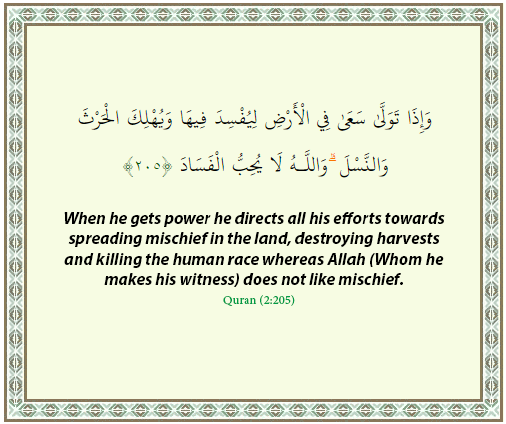
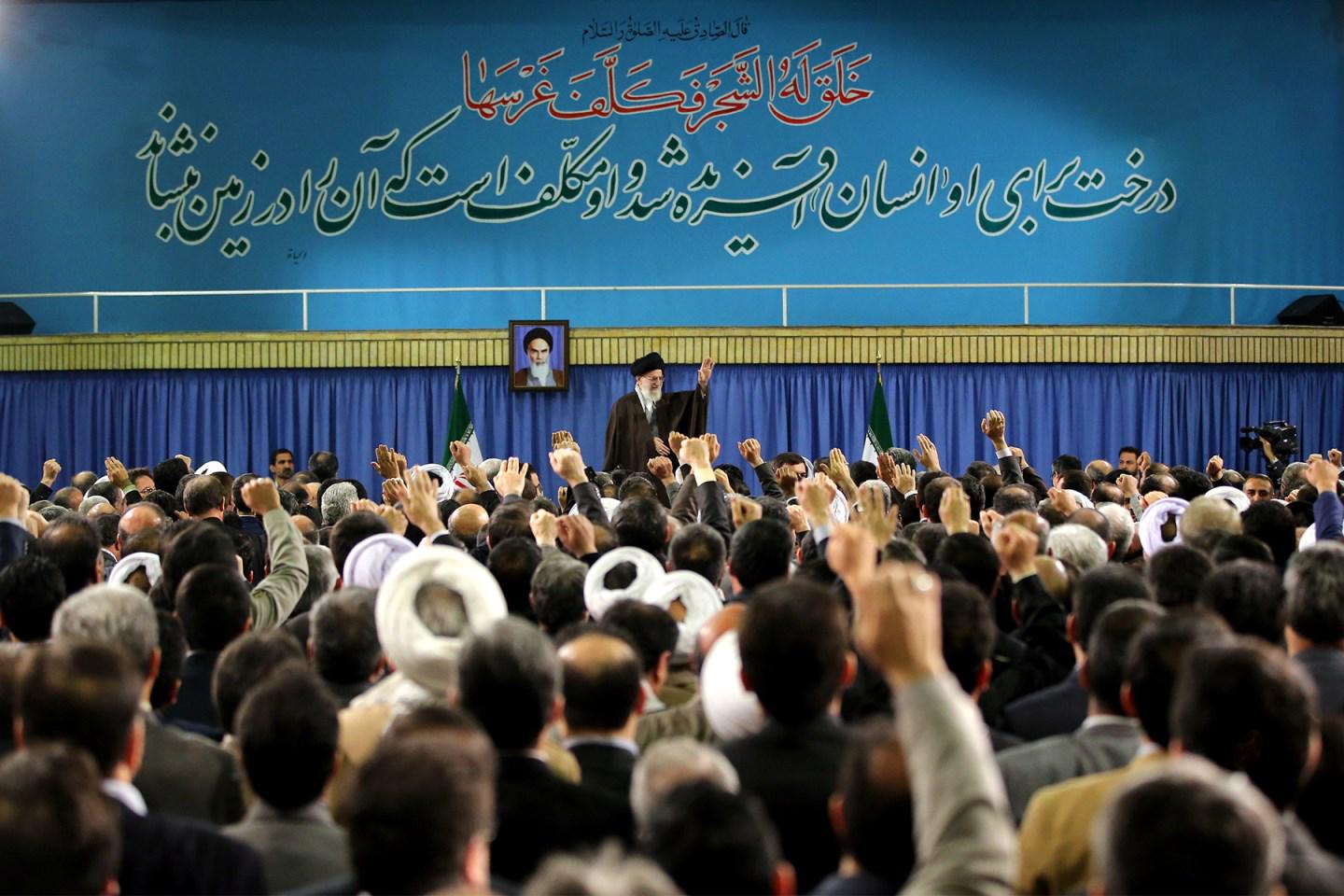
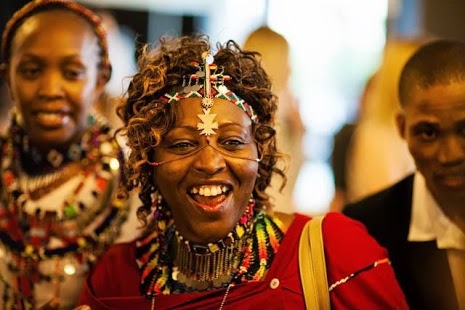
 UN Human Rights
UN Human Rights 
 United Nations
United Nations  Minority Rights
Minority Rights 
 UN Women
UN Women  UNICEF
UNICEF 



 allAfrica.com
allAfrica.com 

 BusinessHumanRights
BusinessHumanRights 
 Oakland Institute
Oakland Institute 
